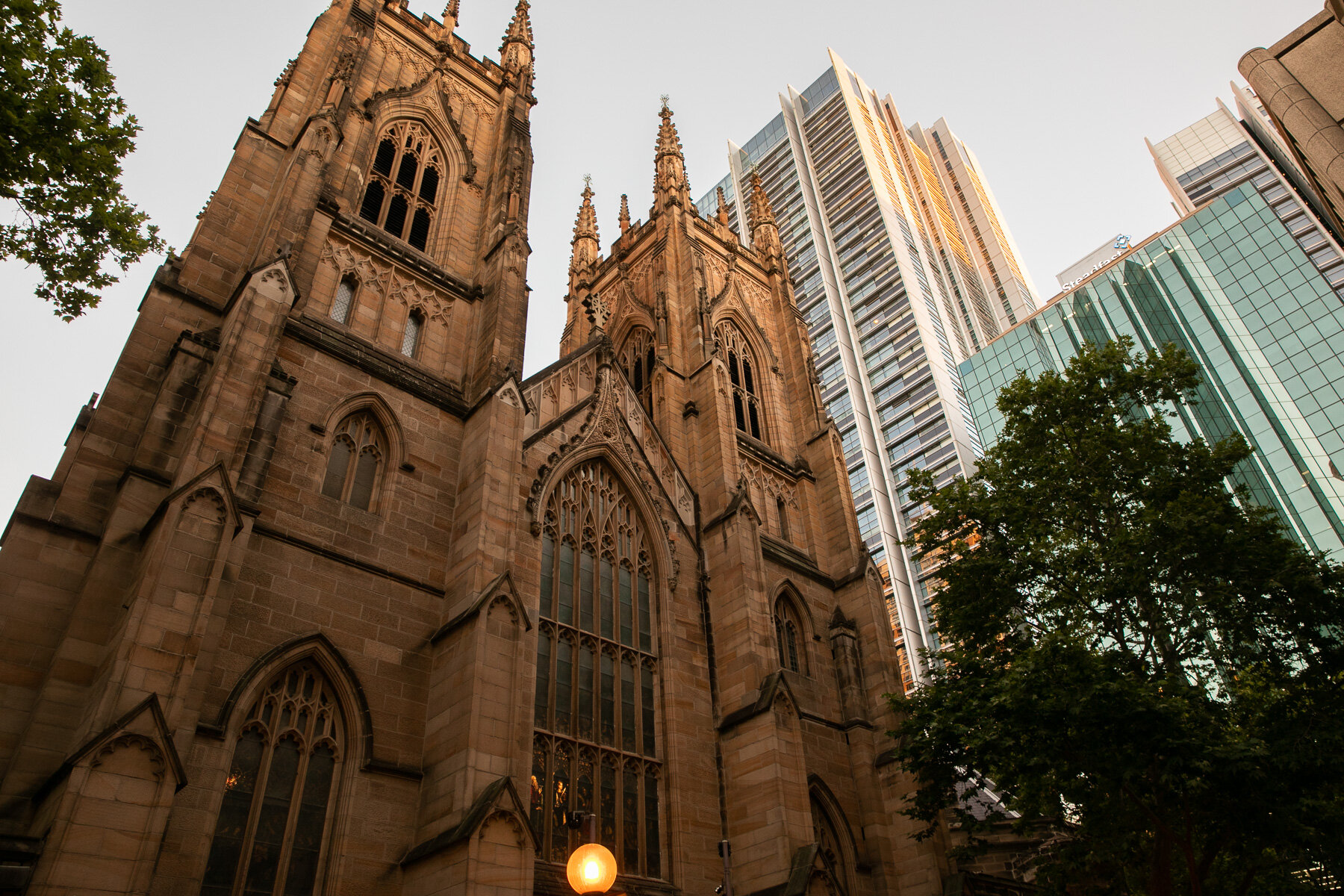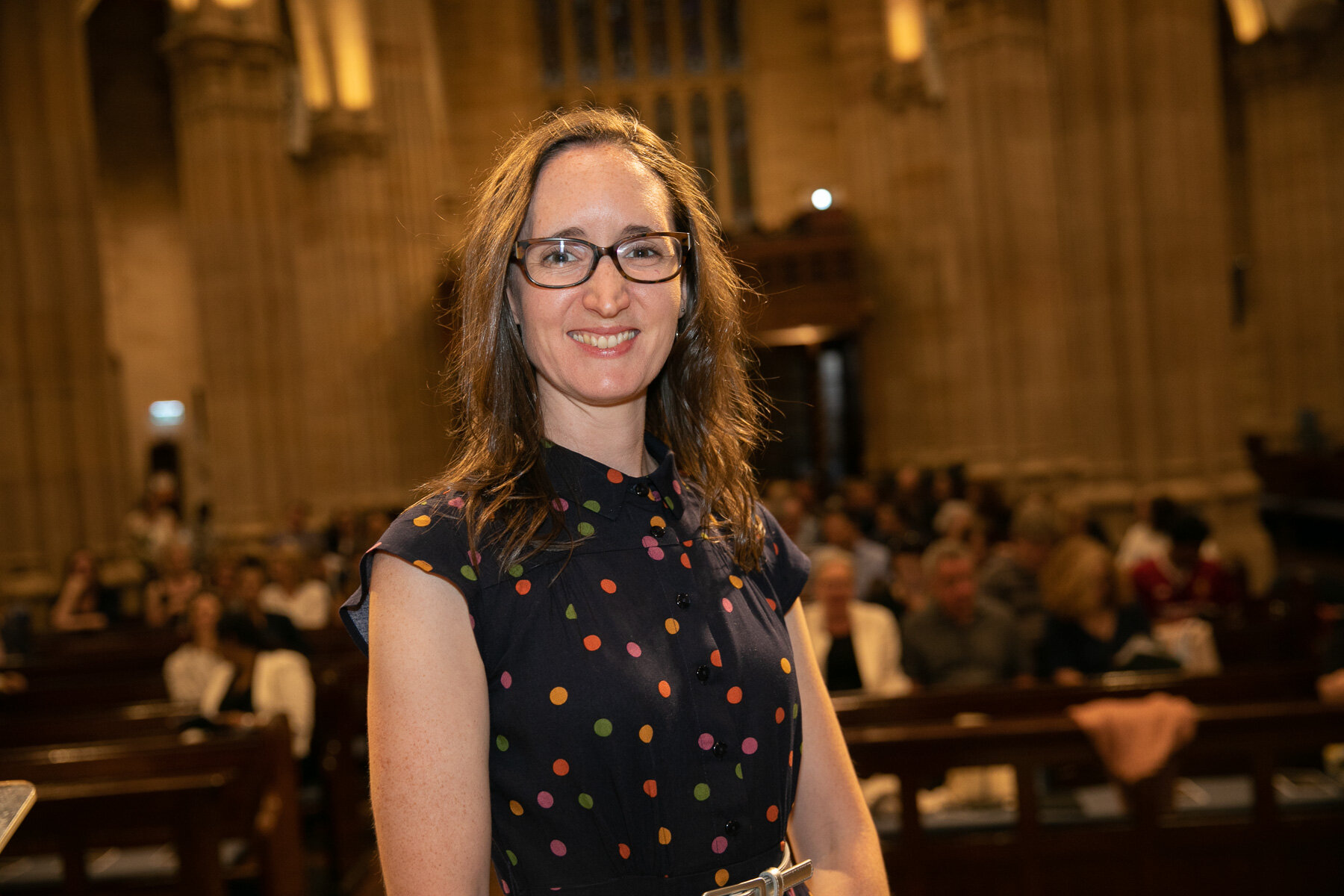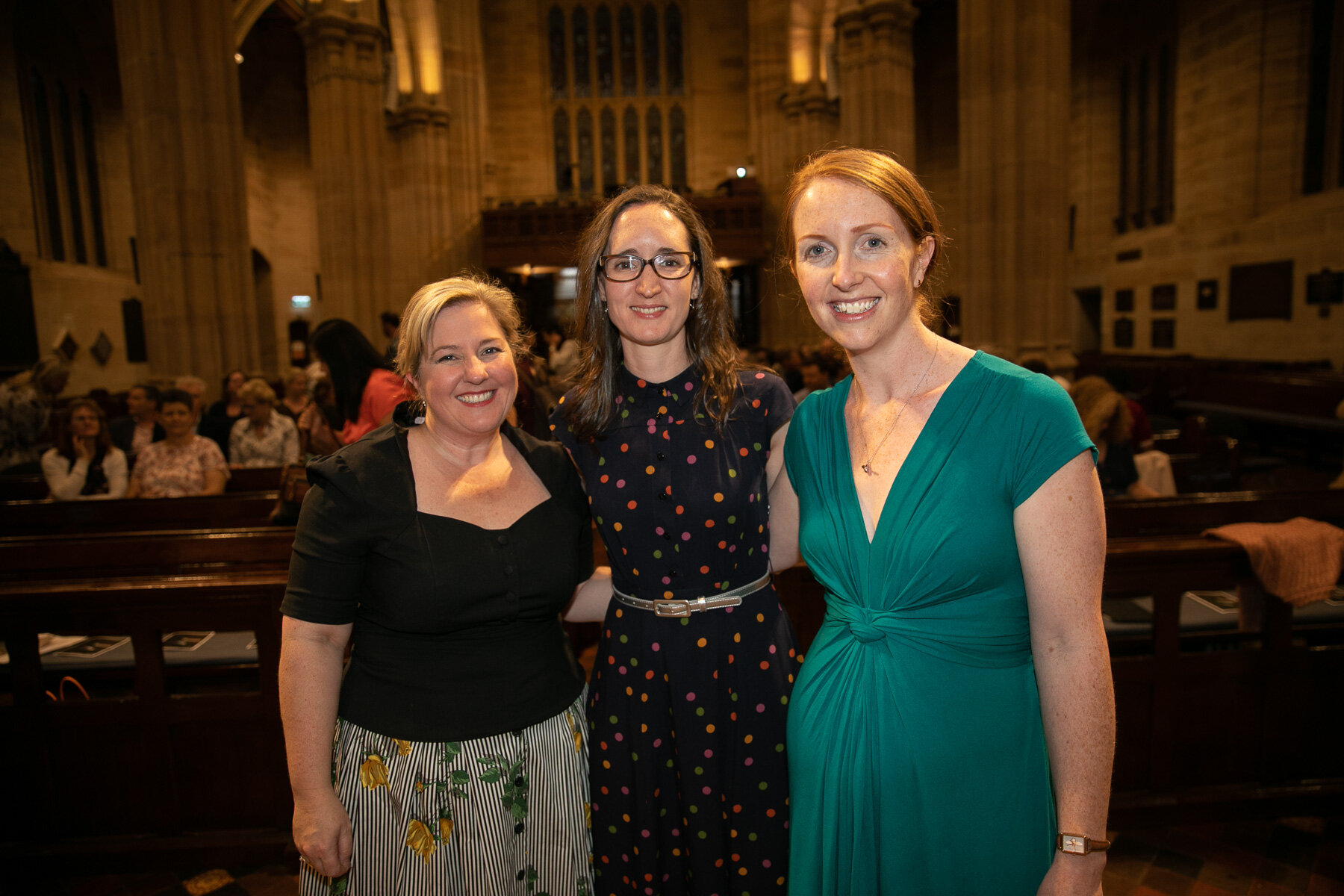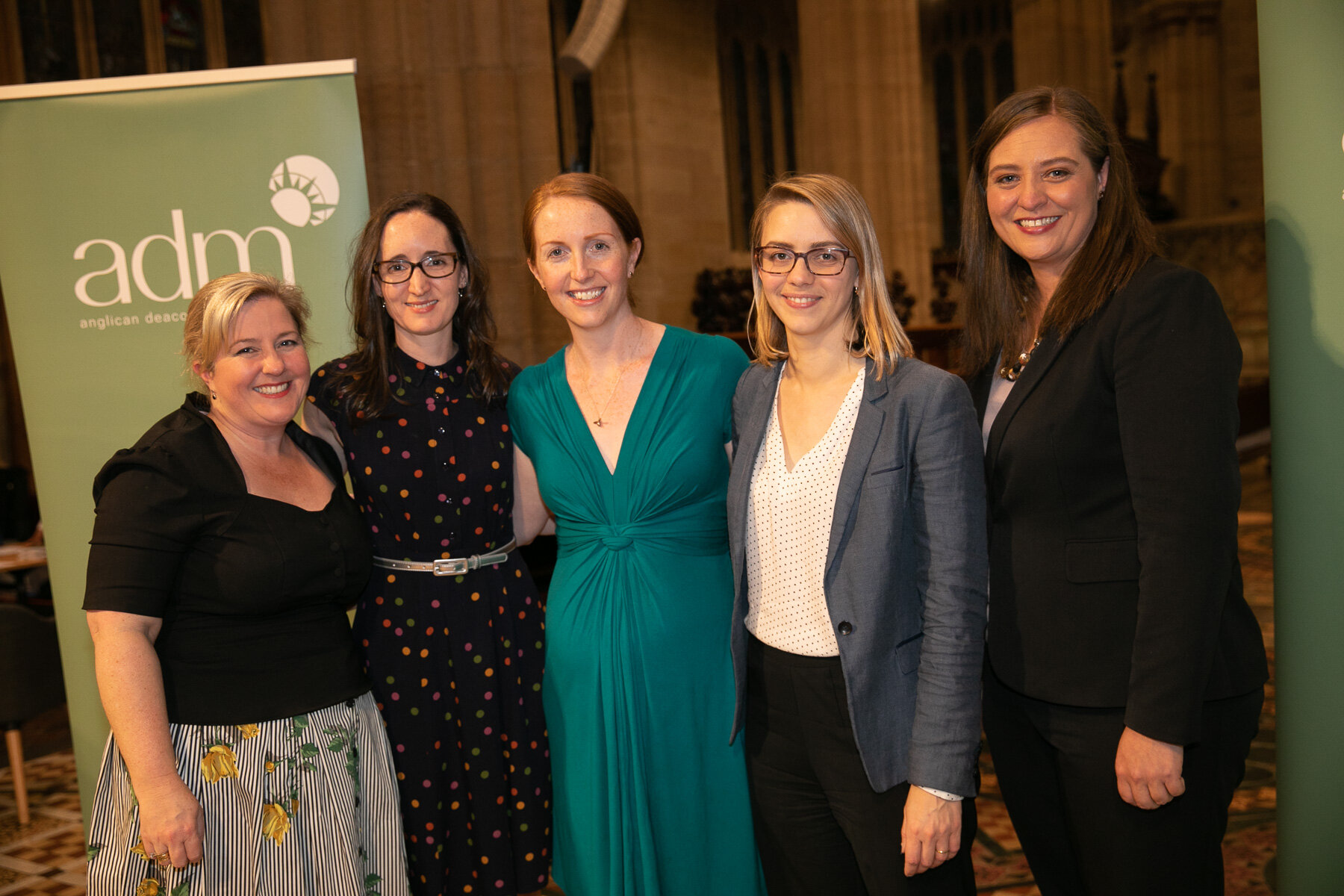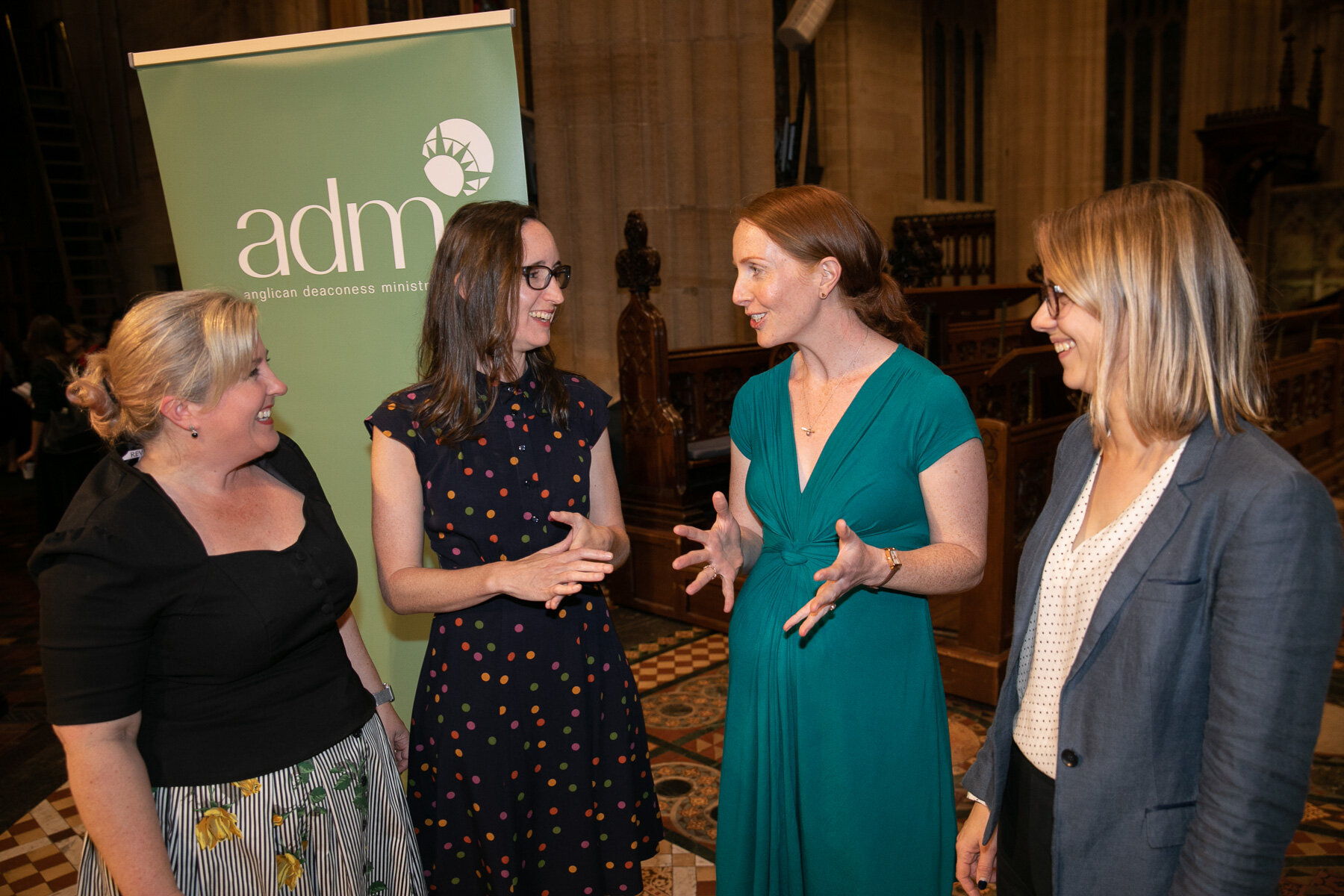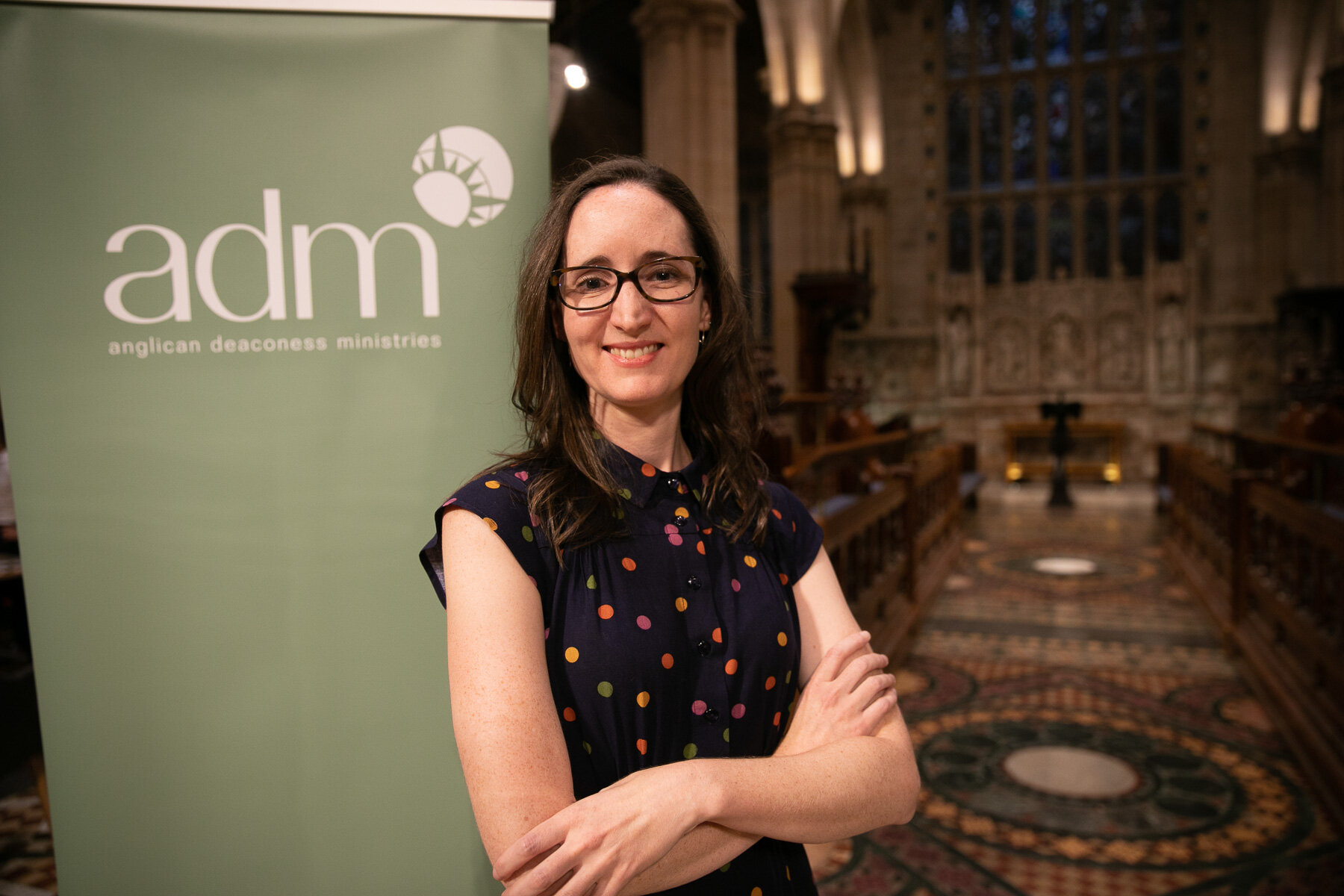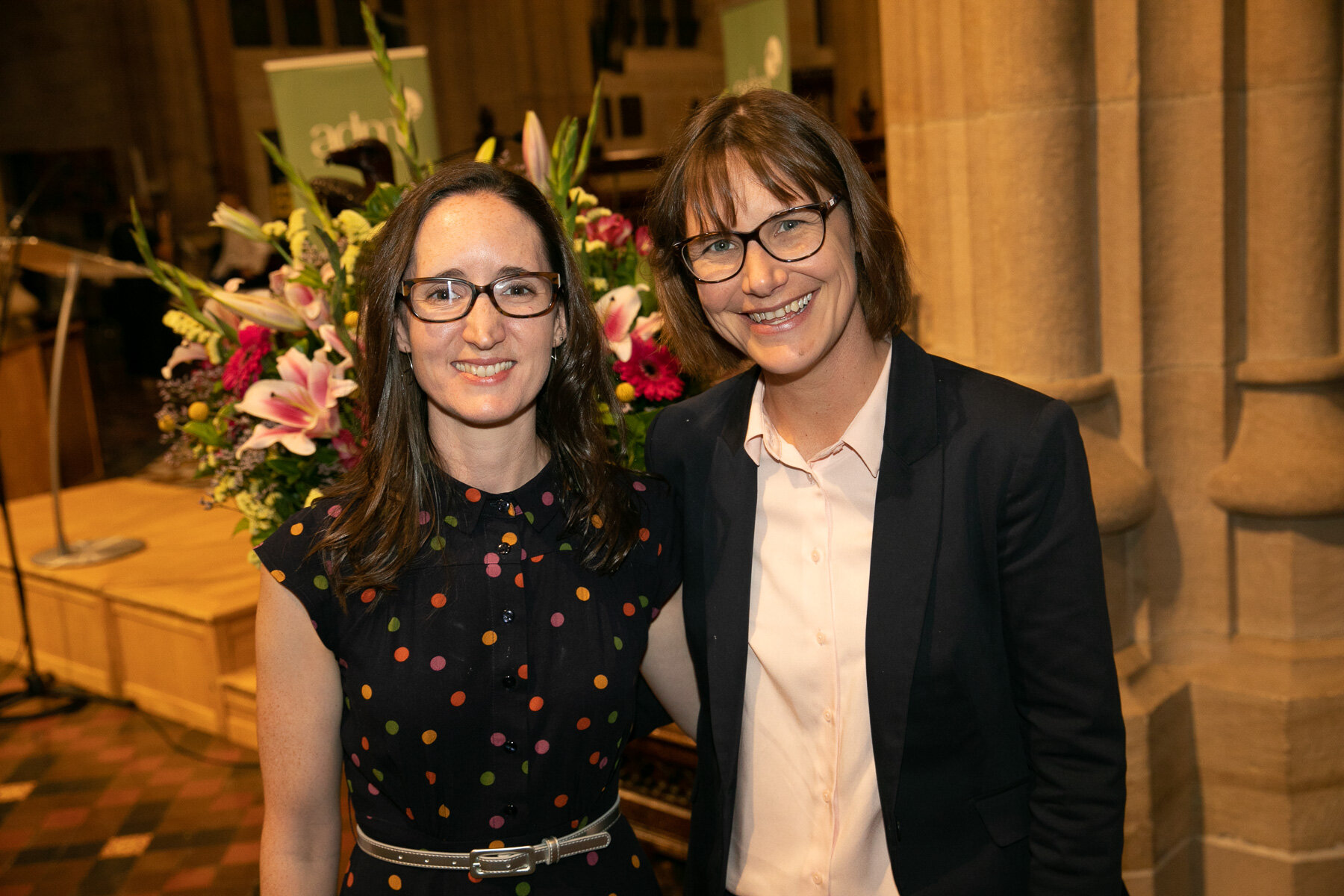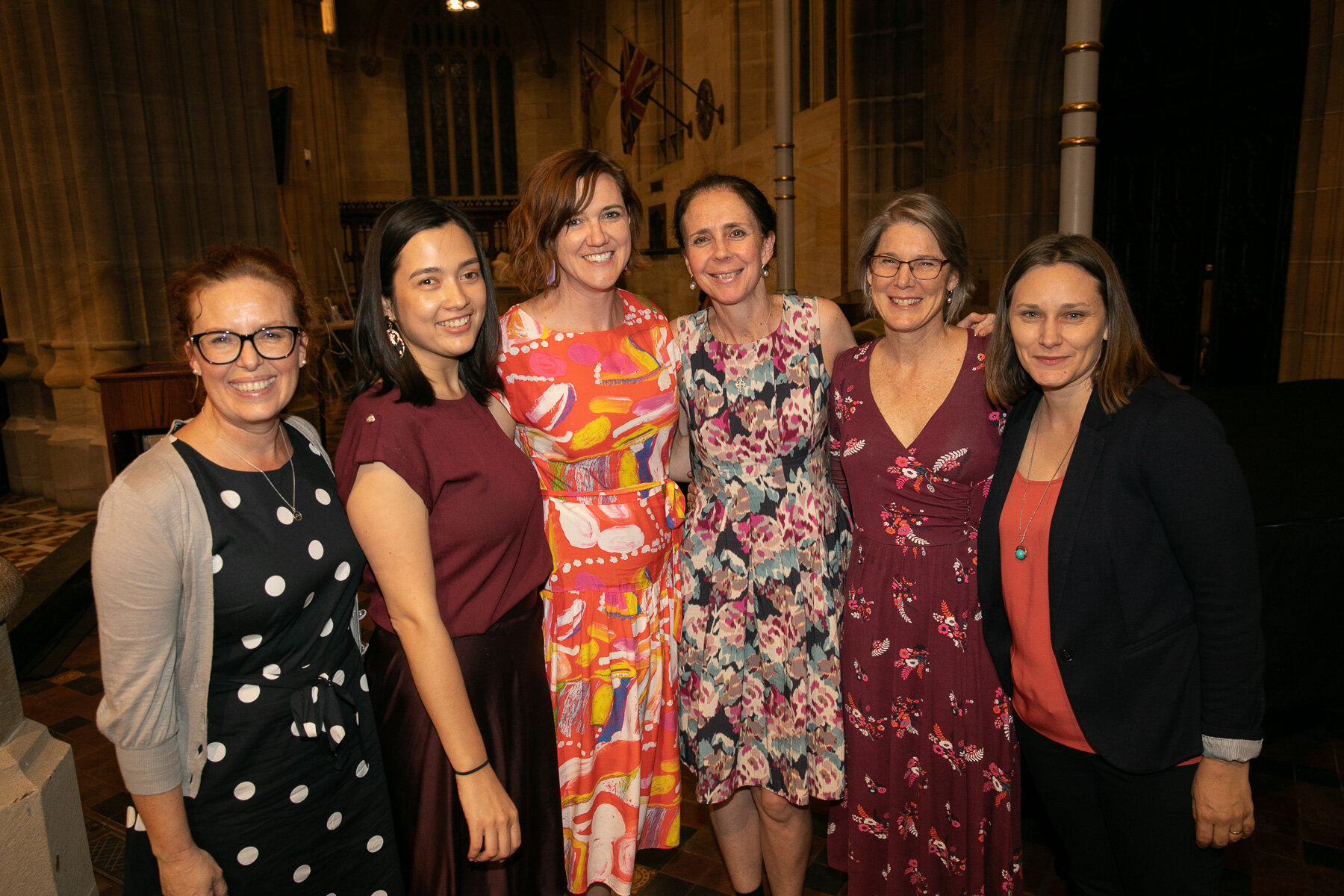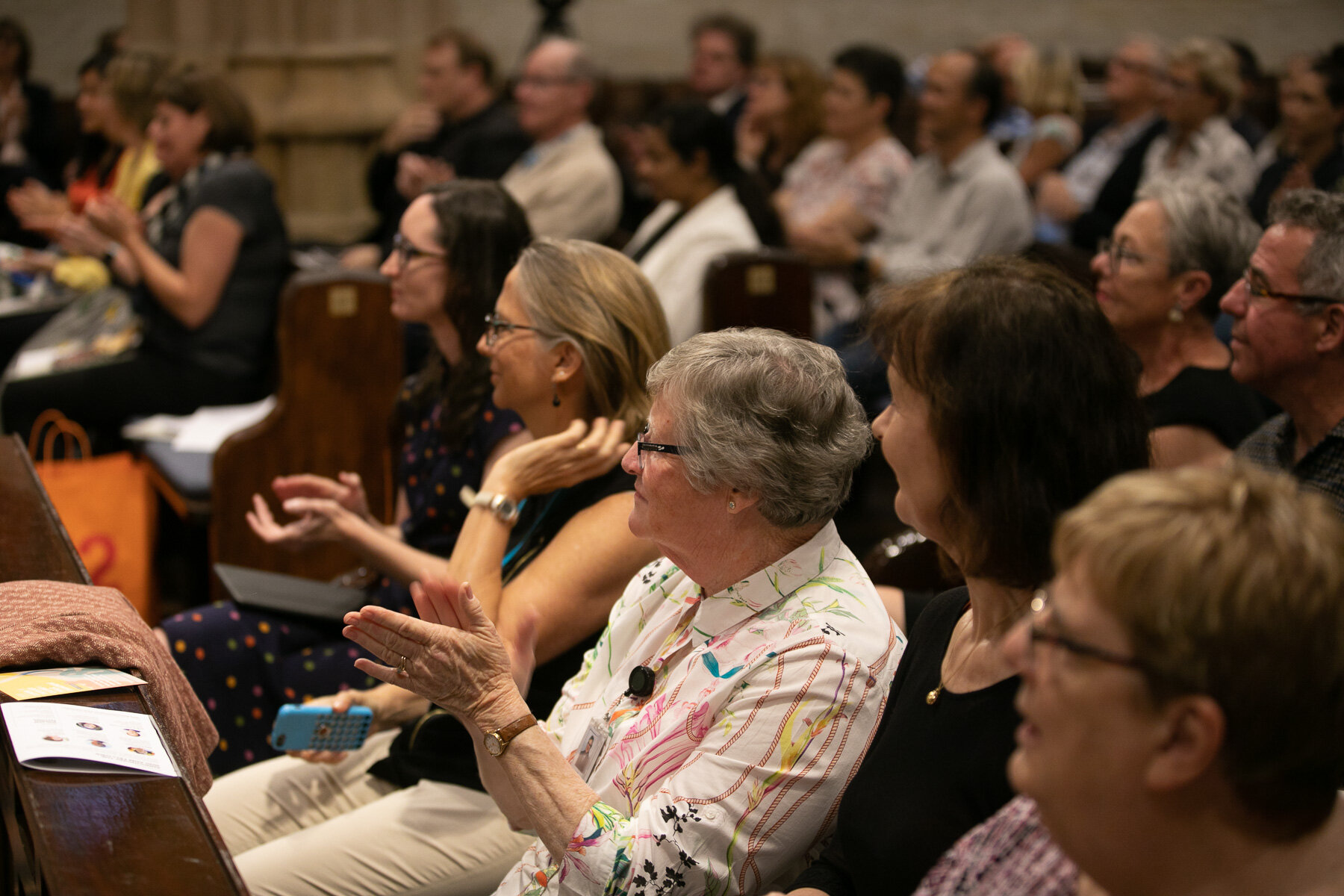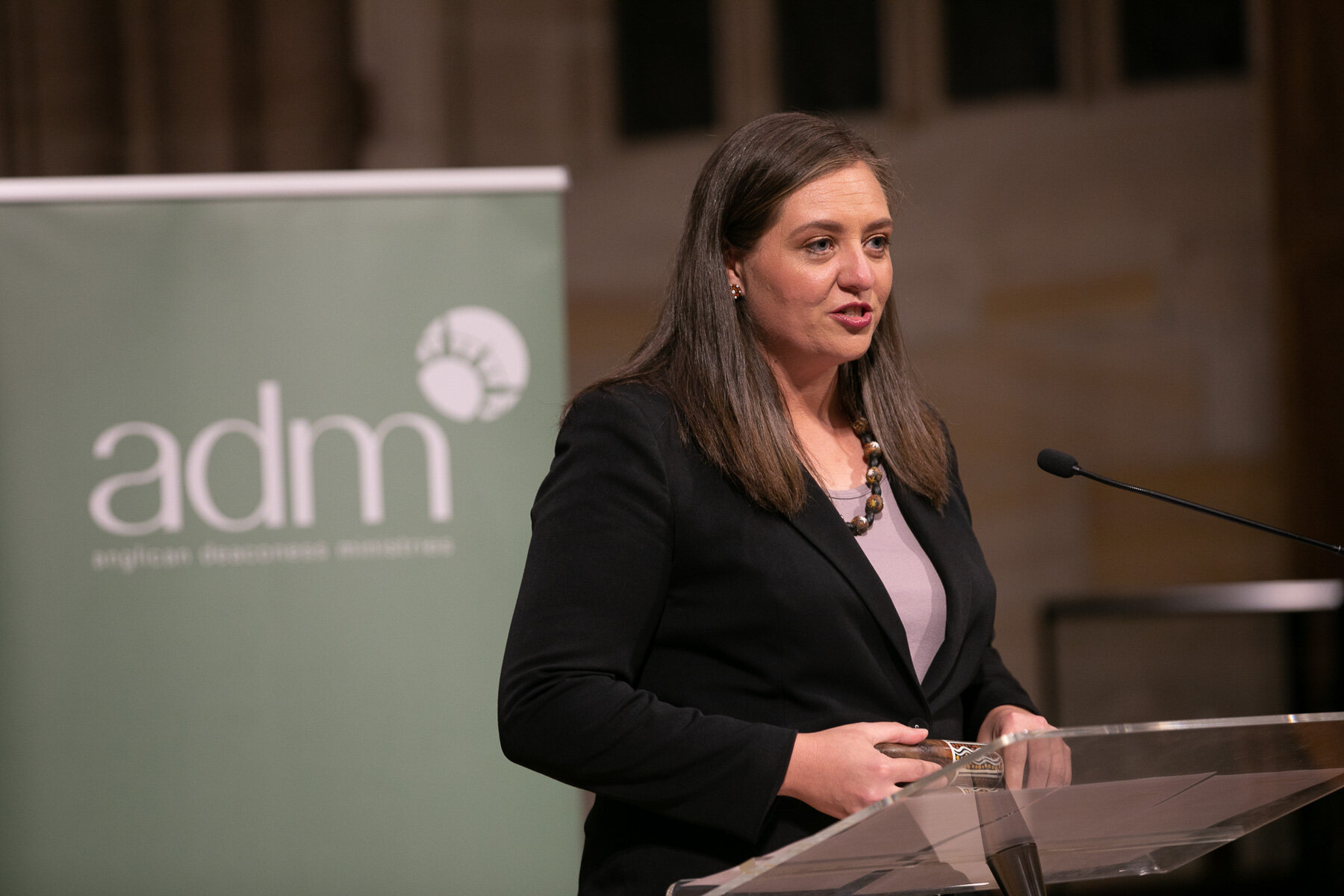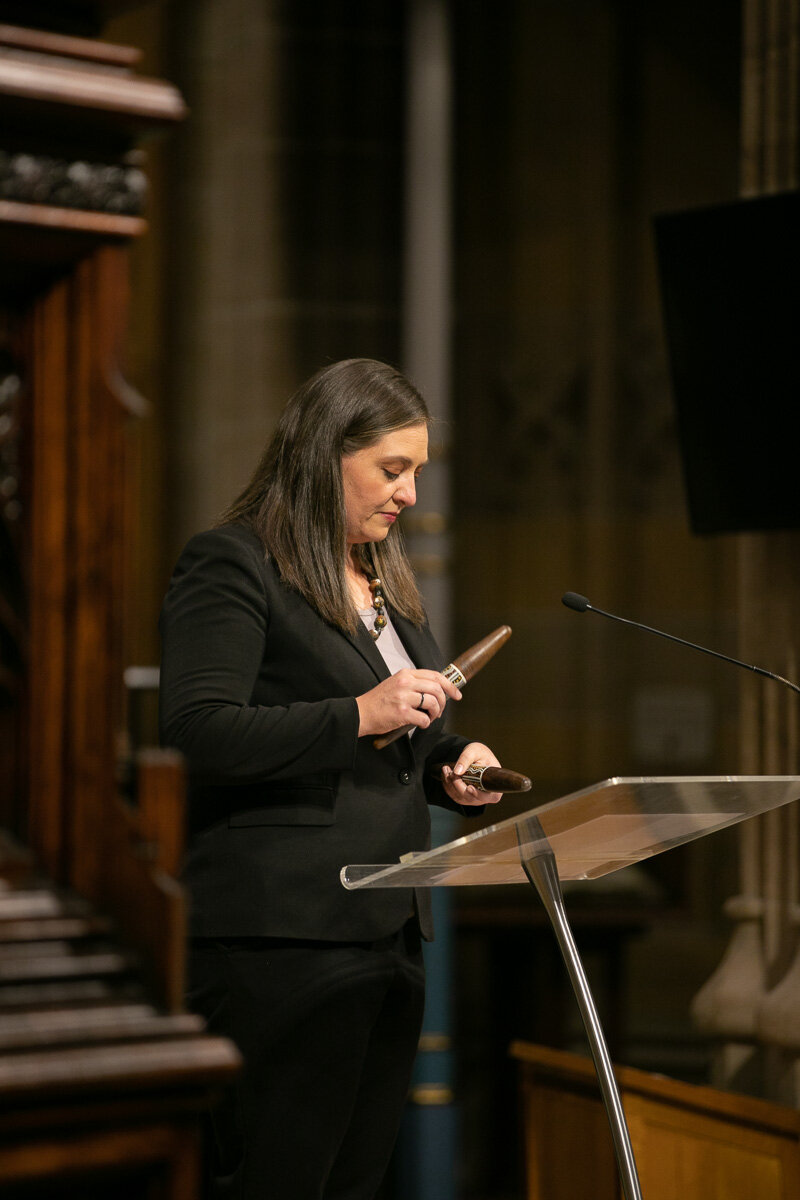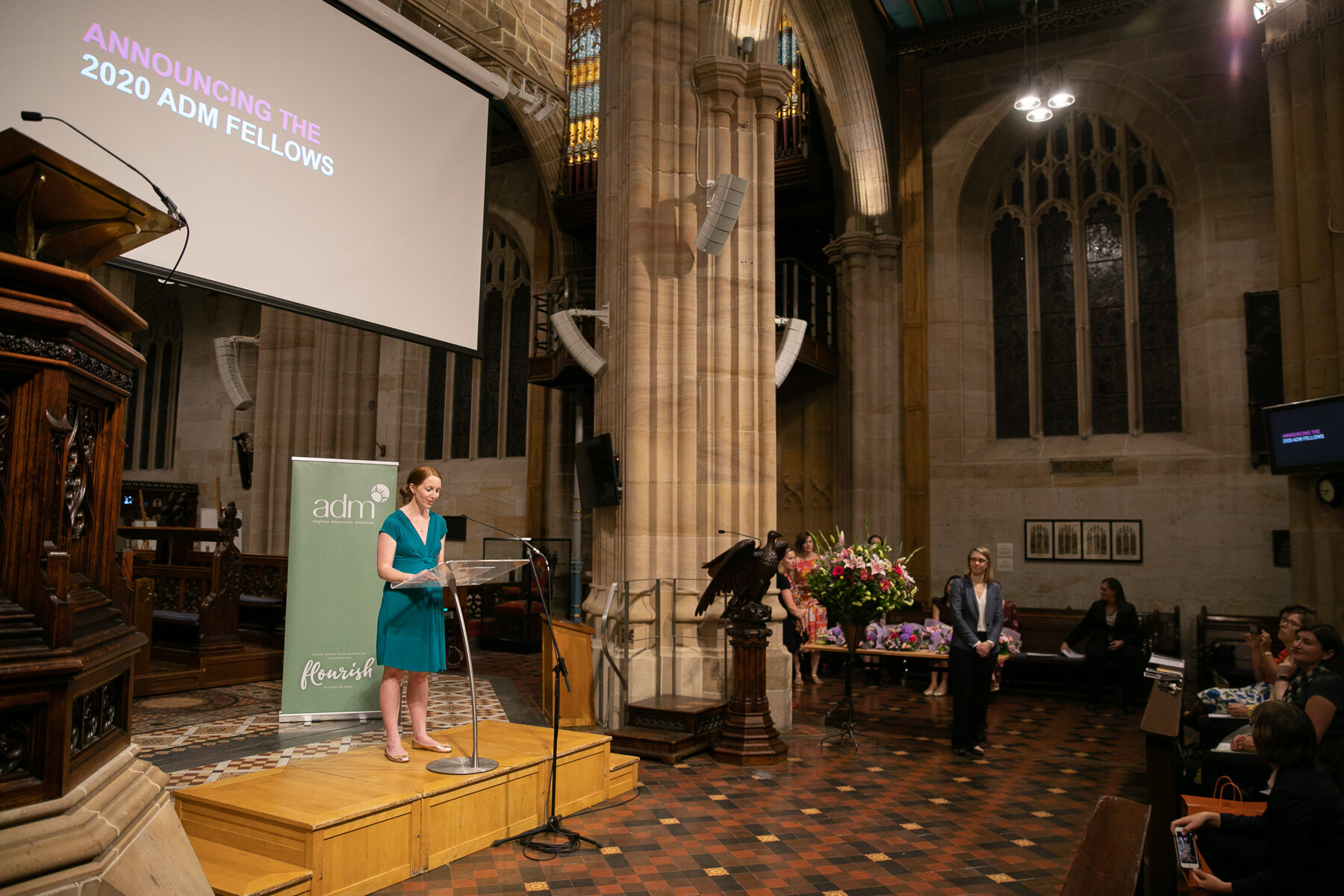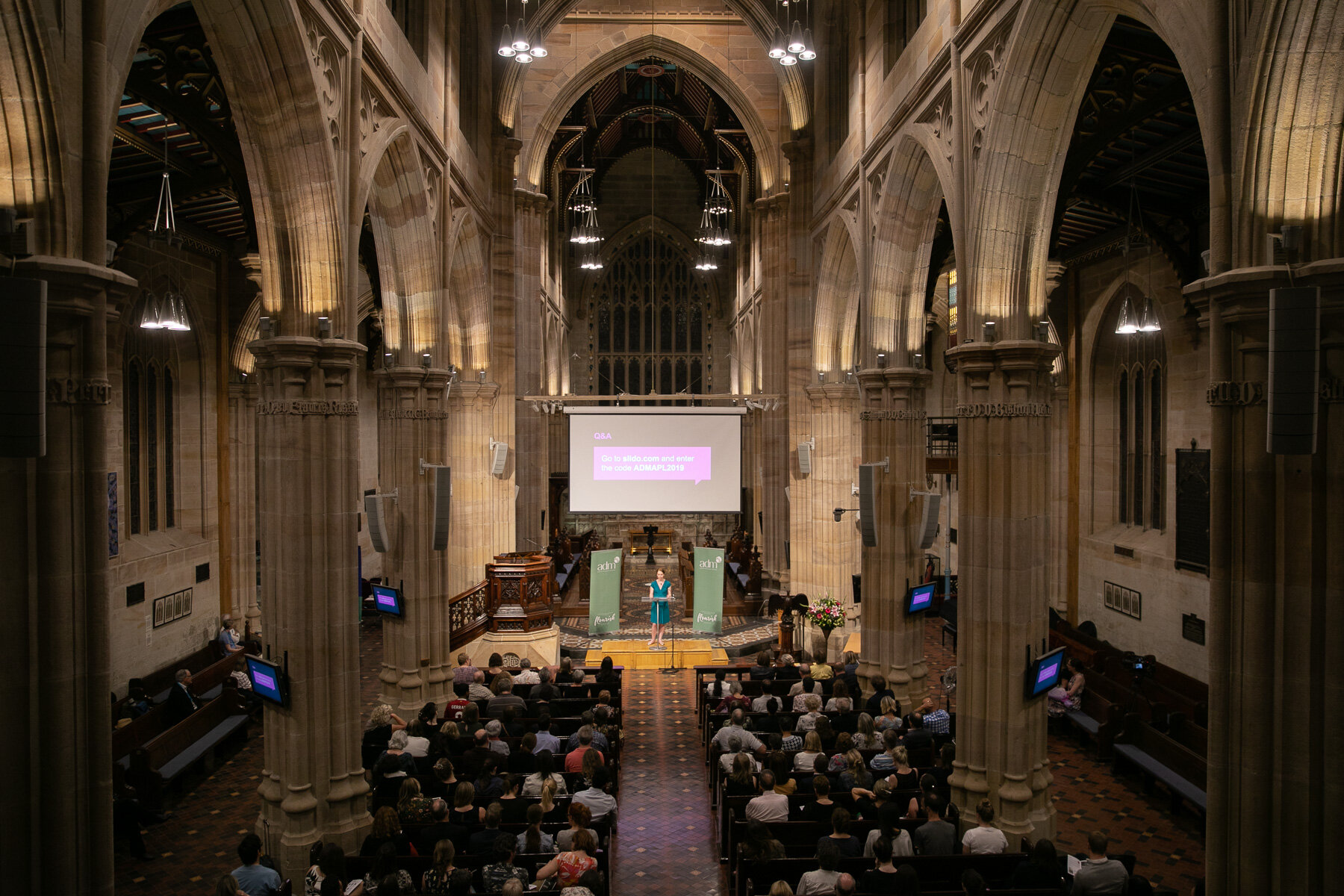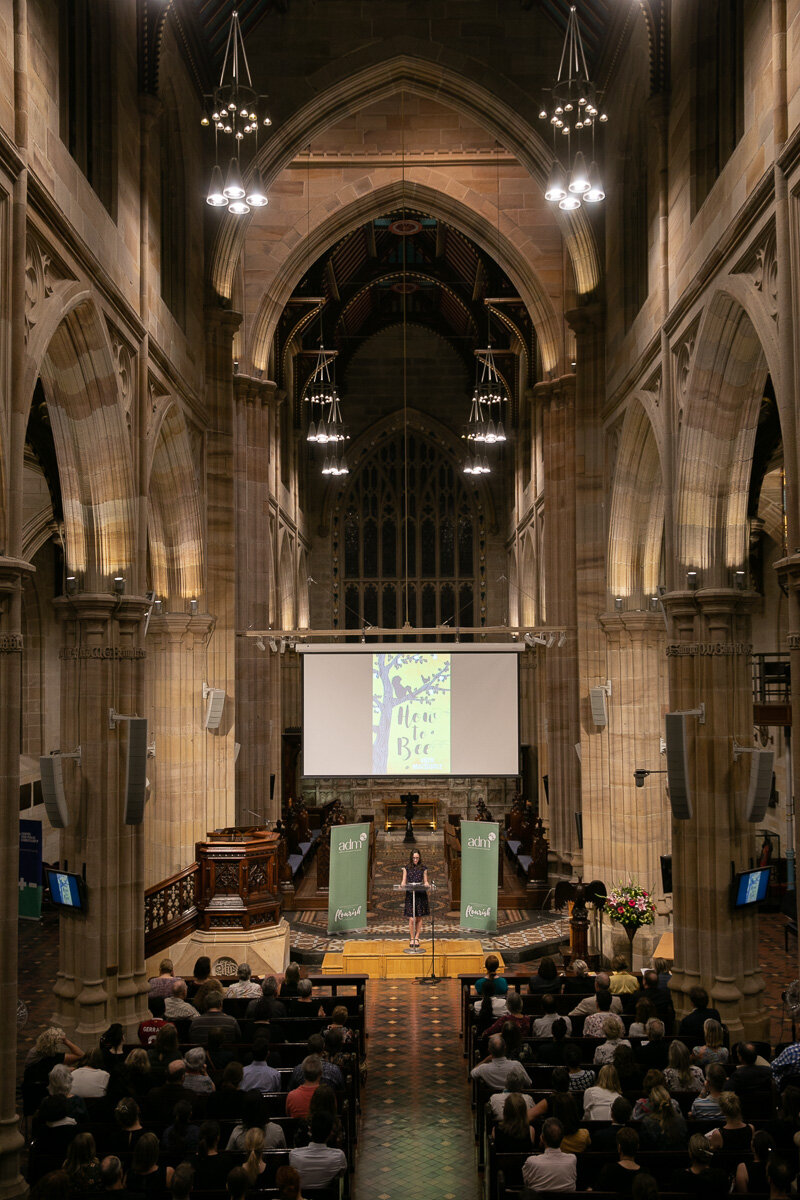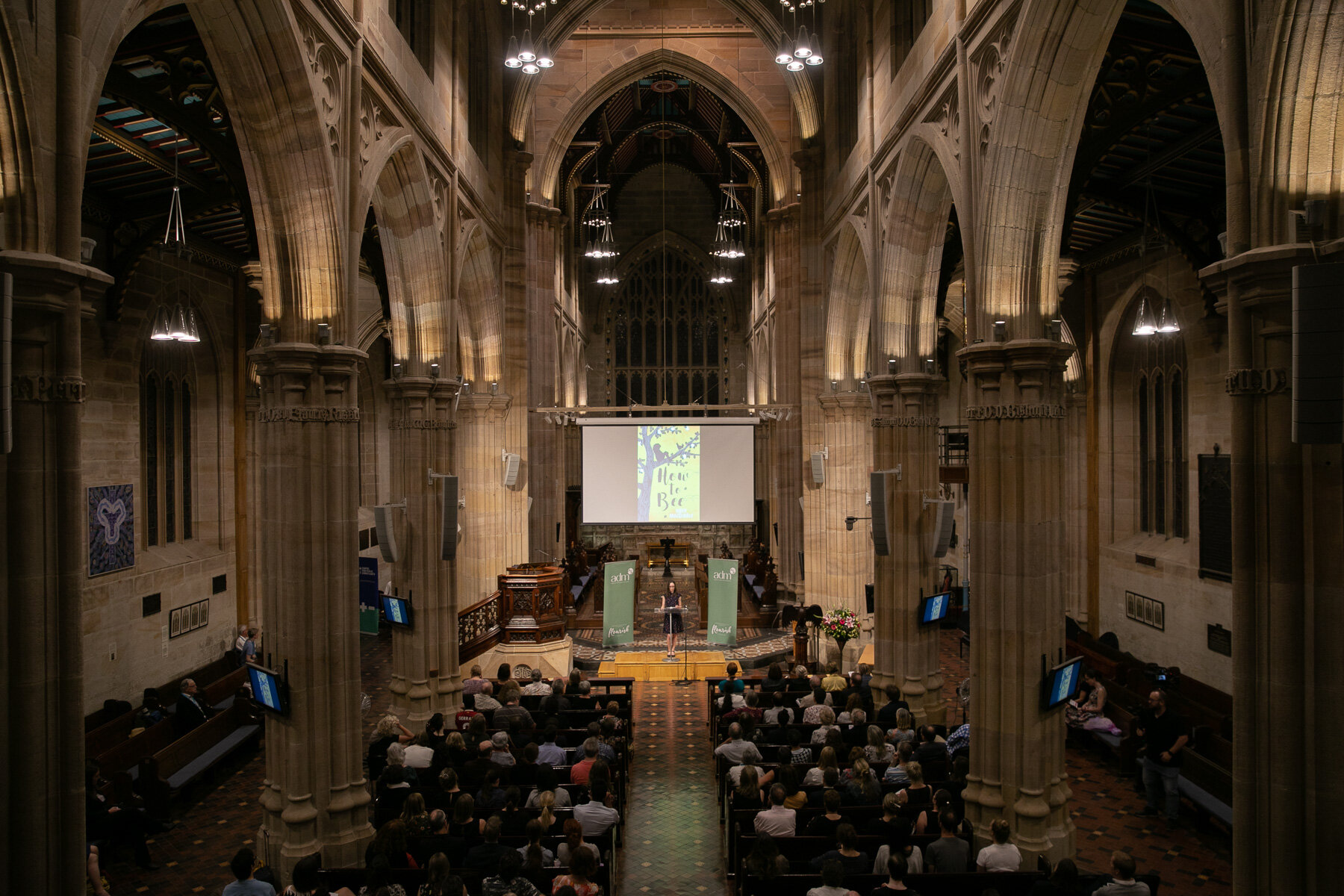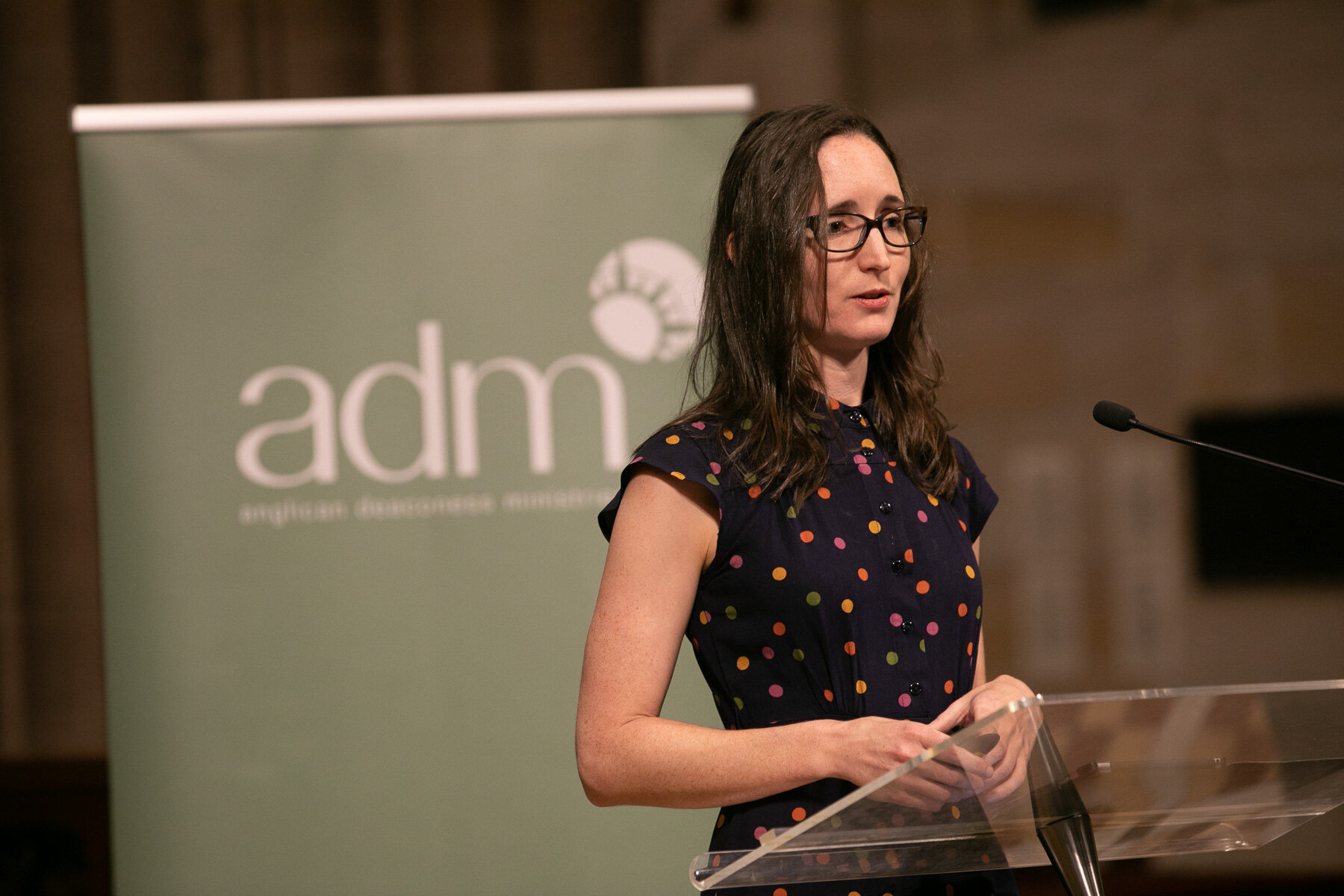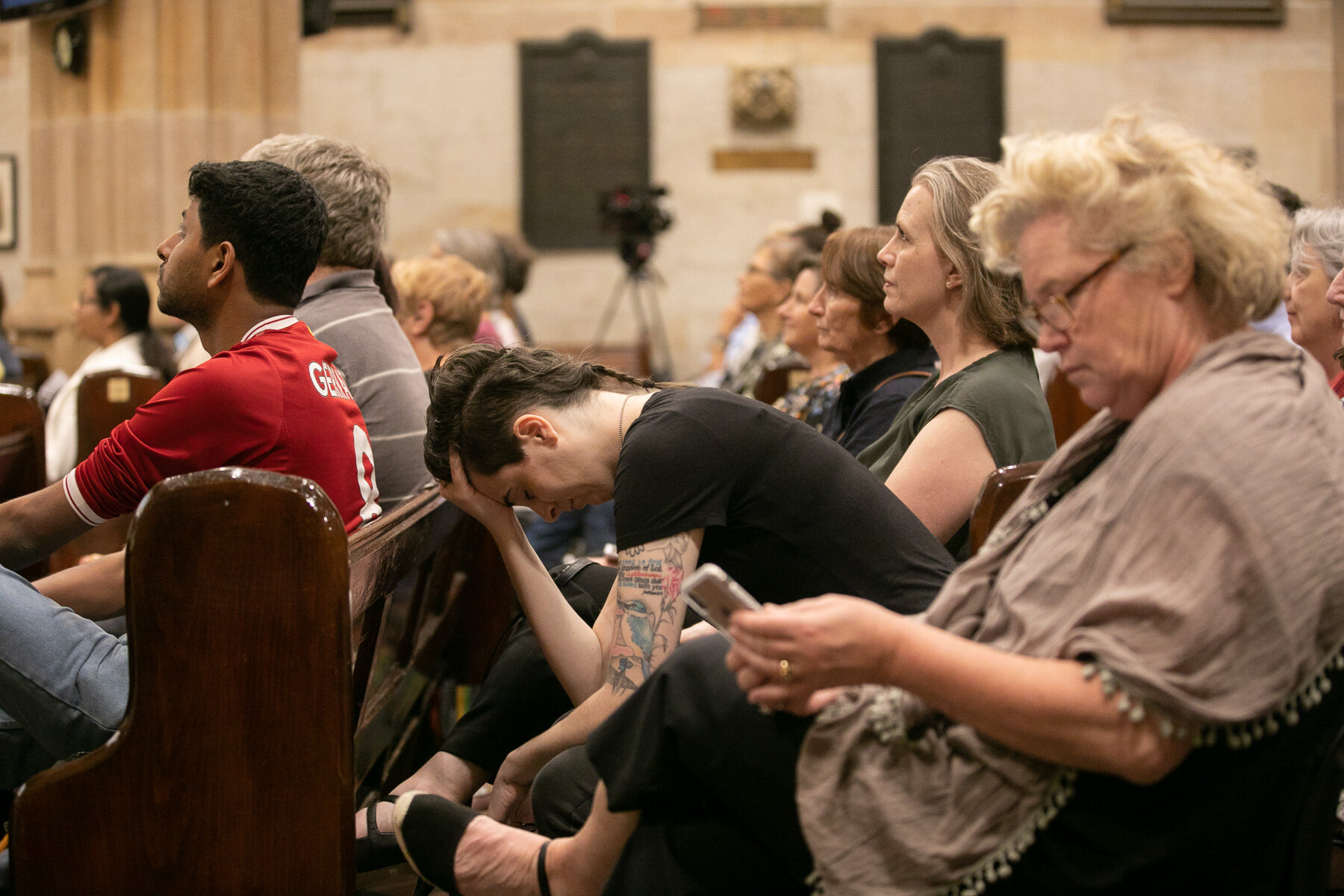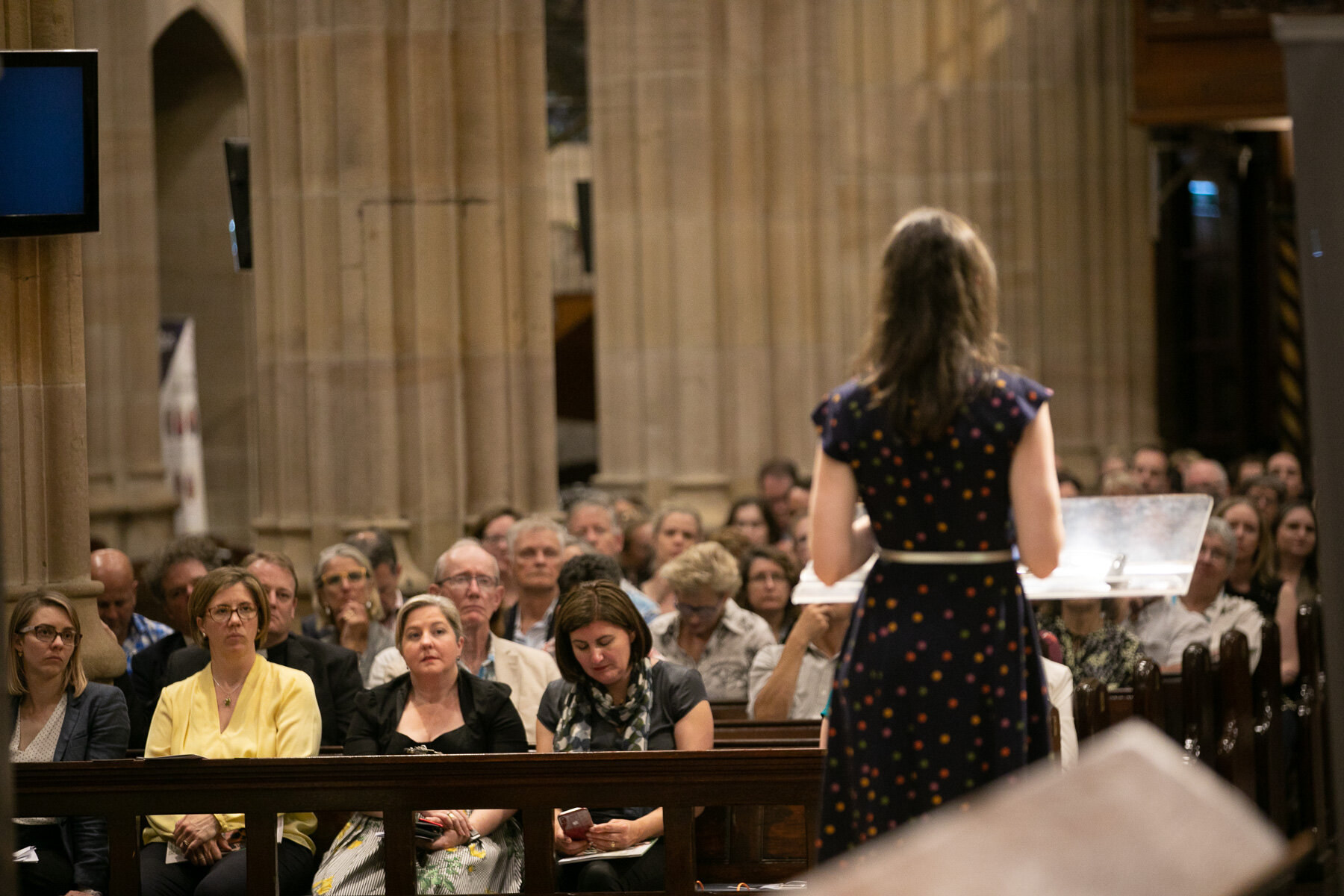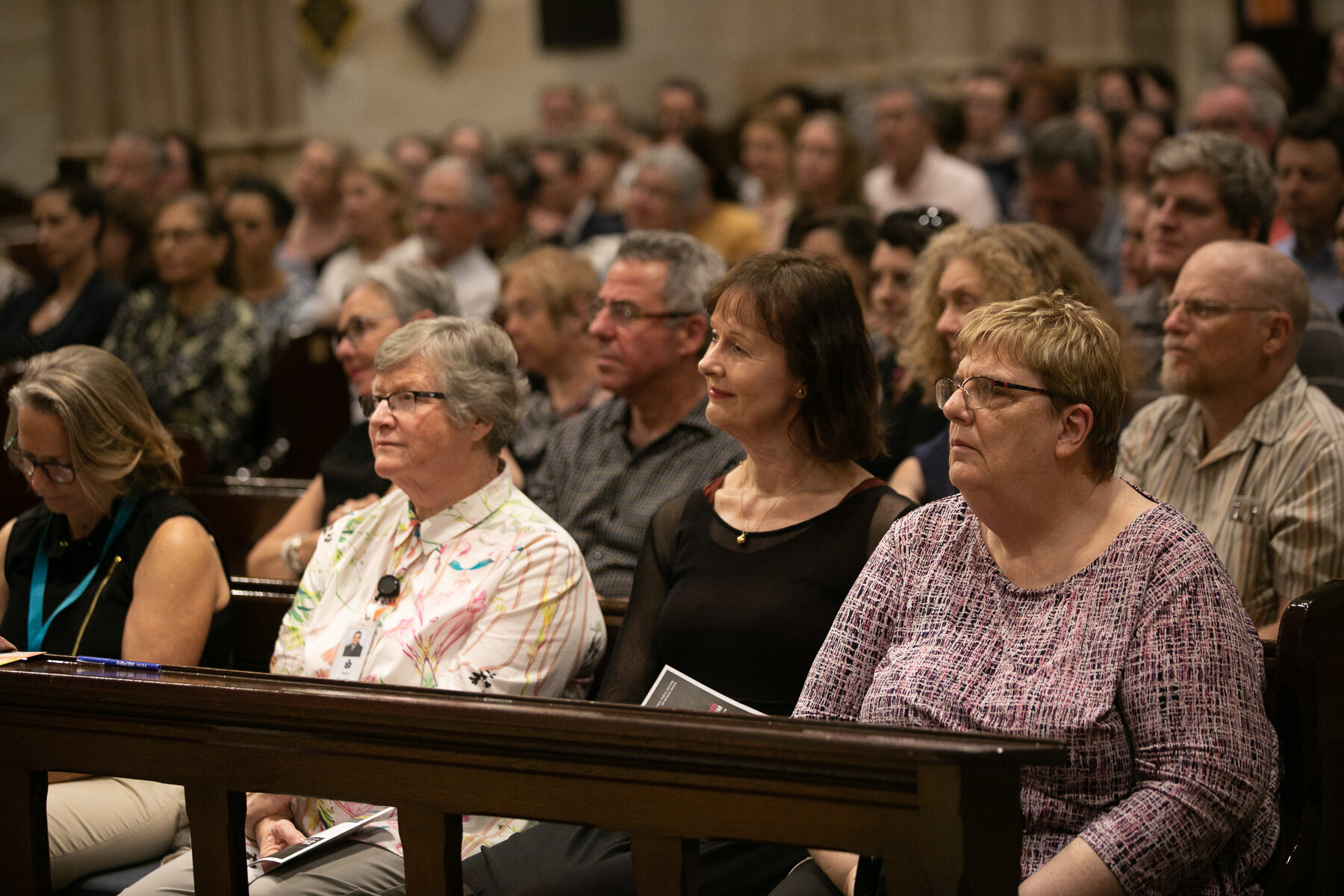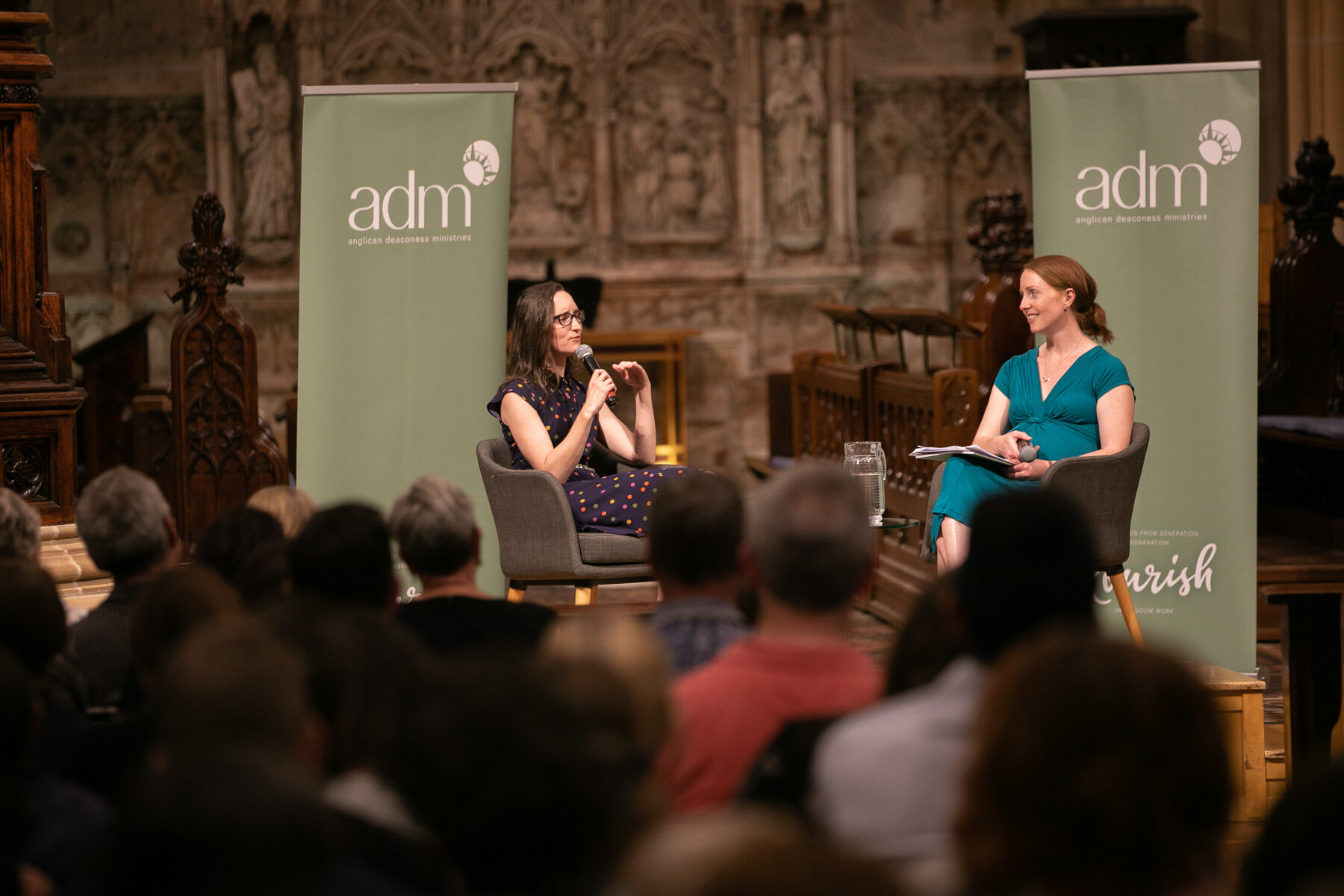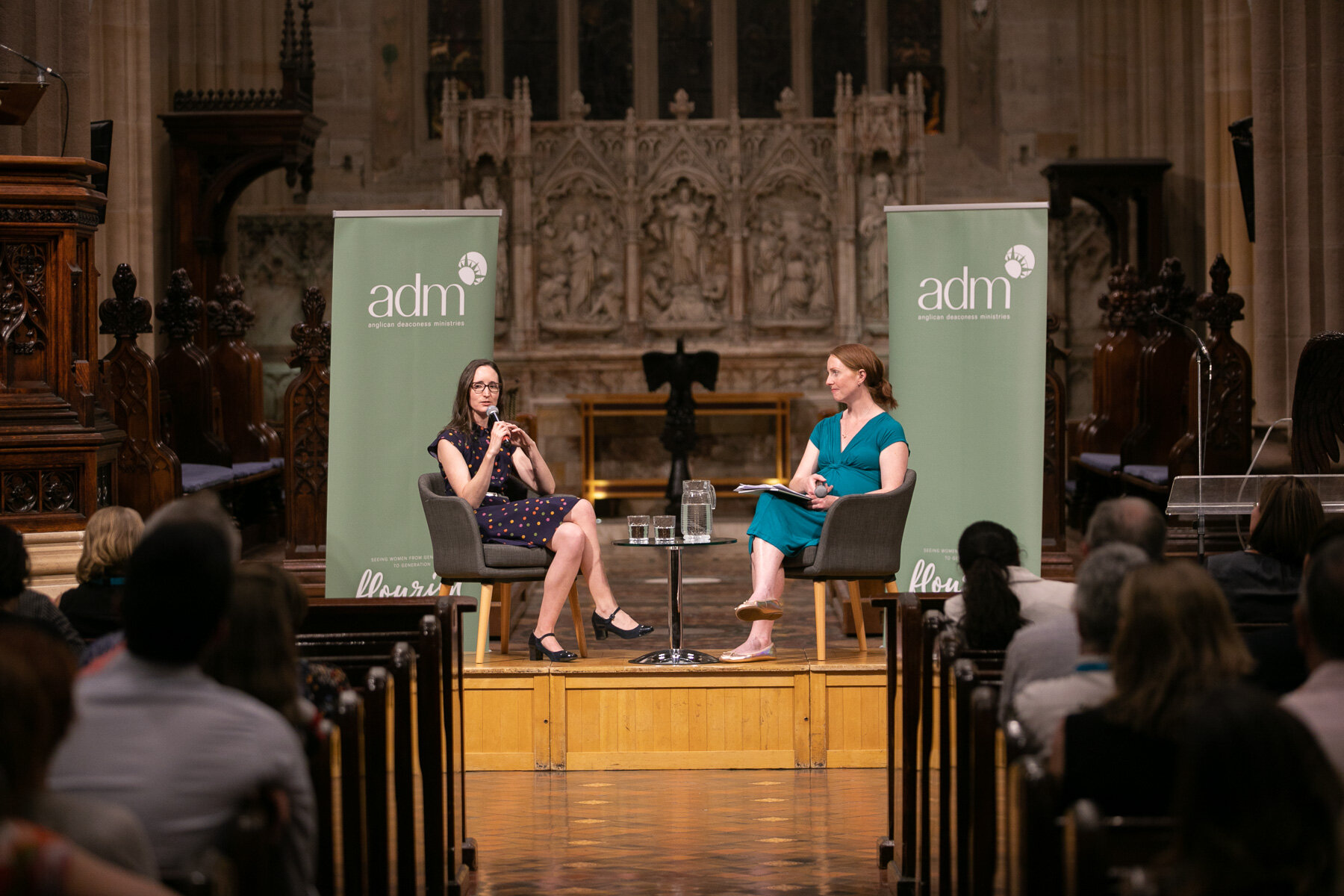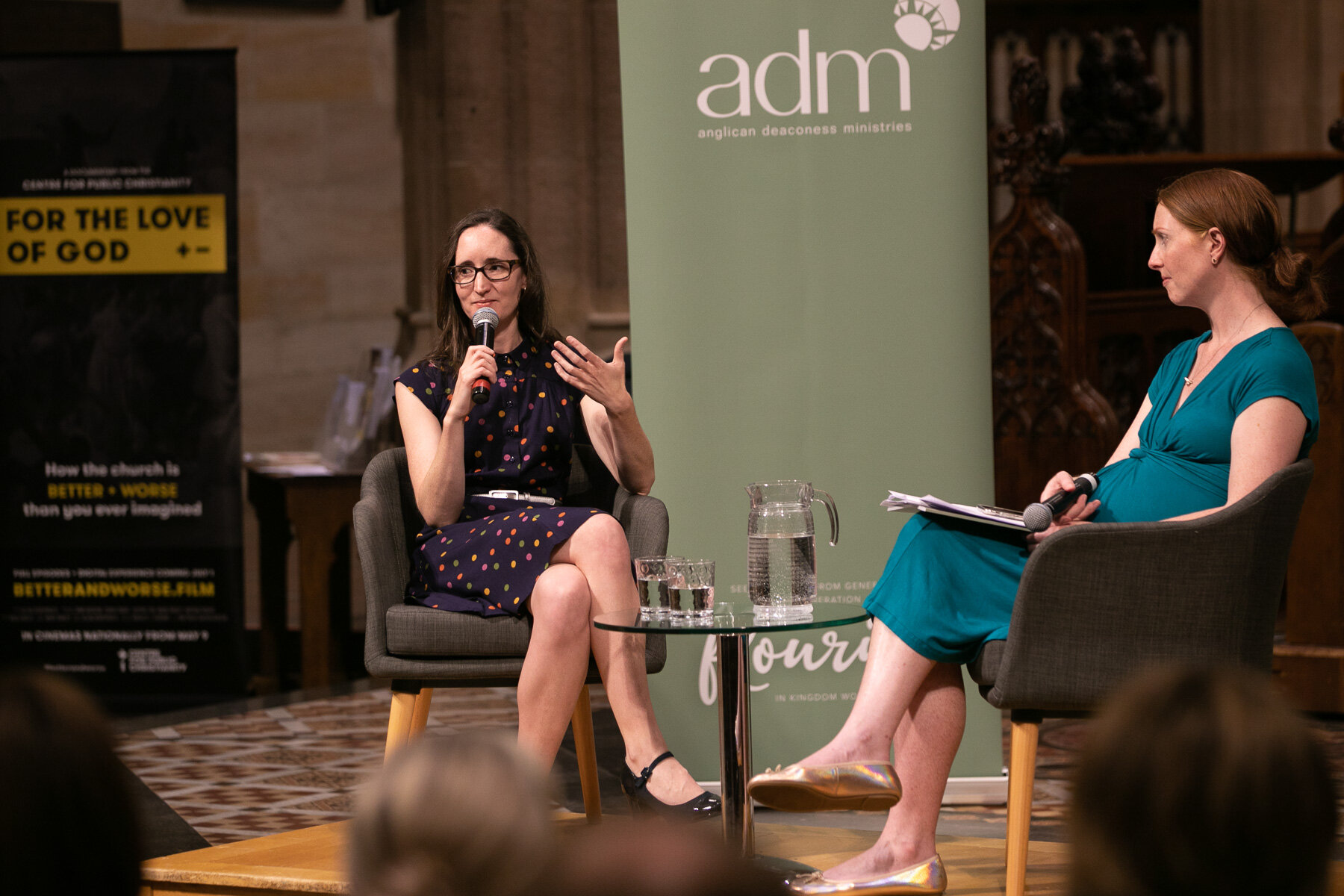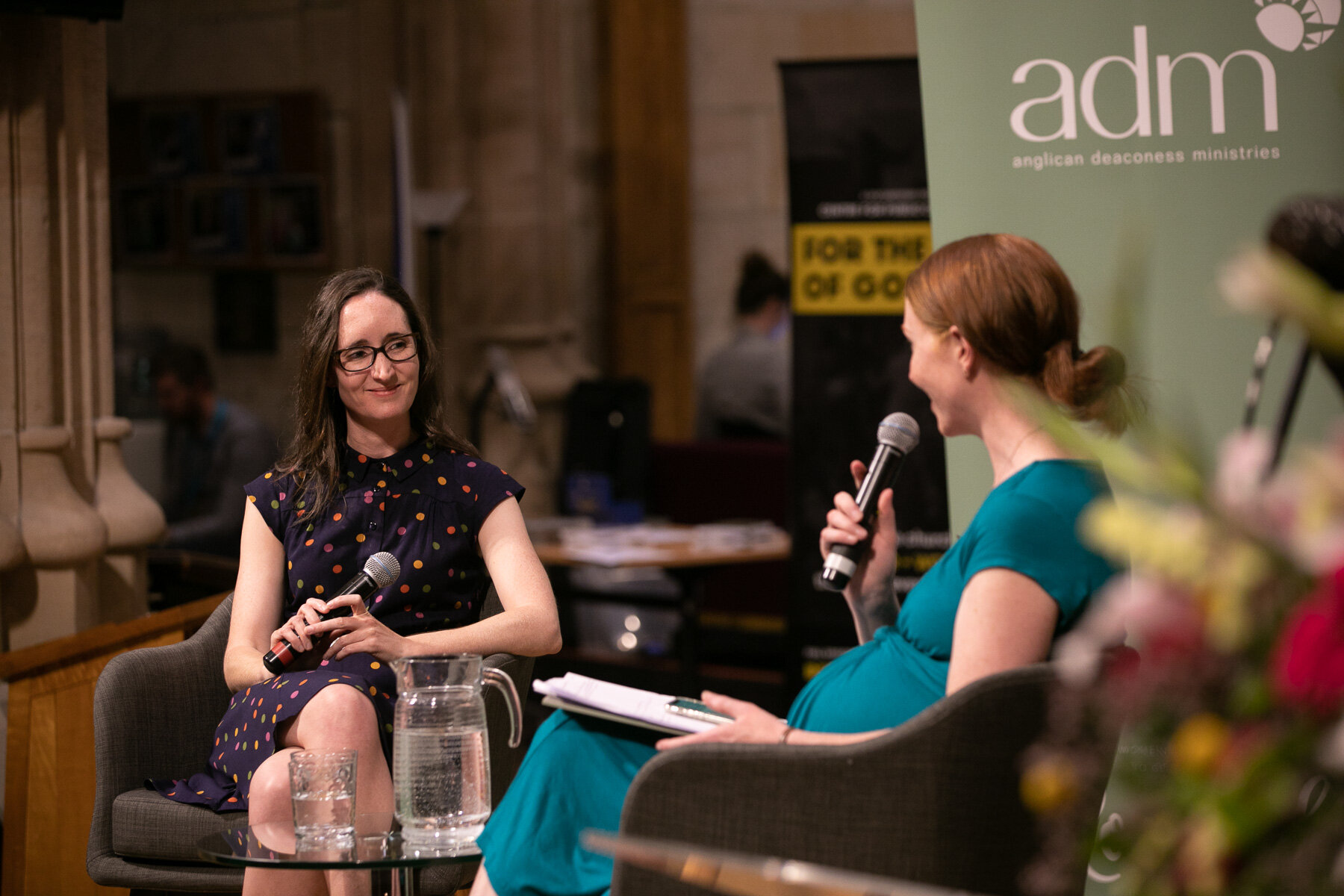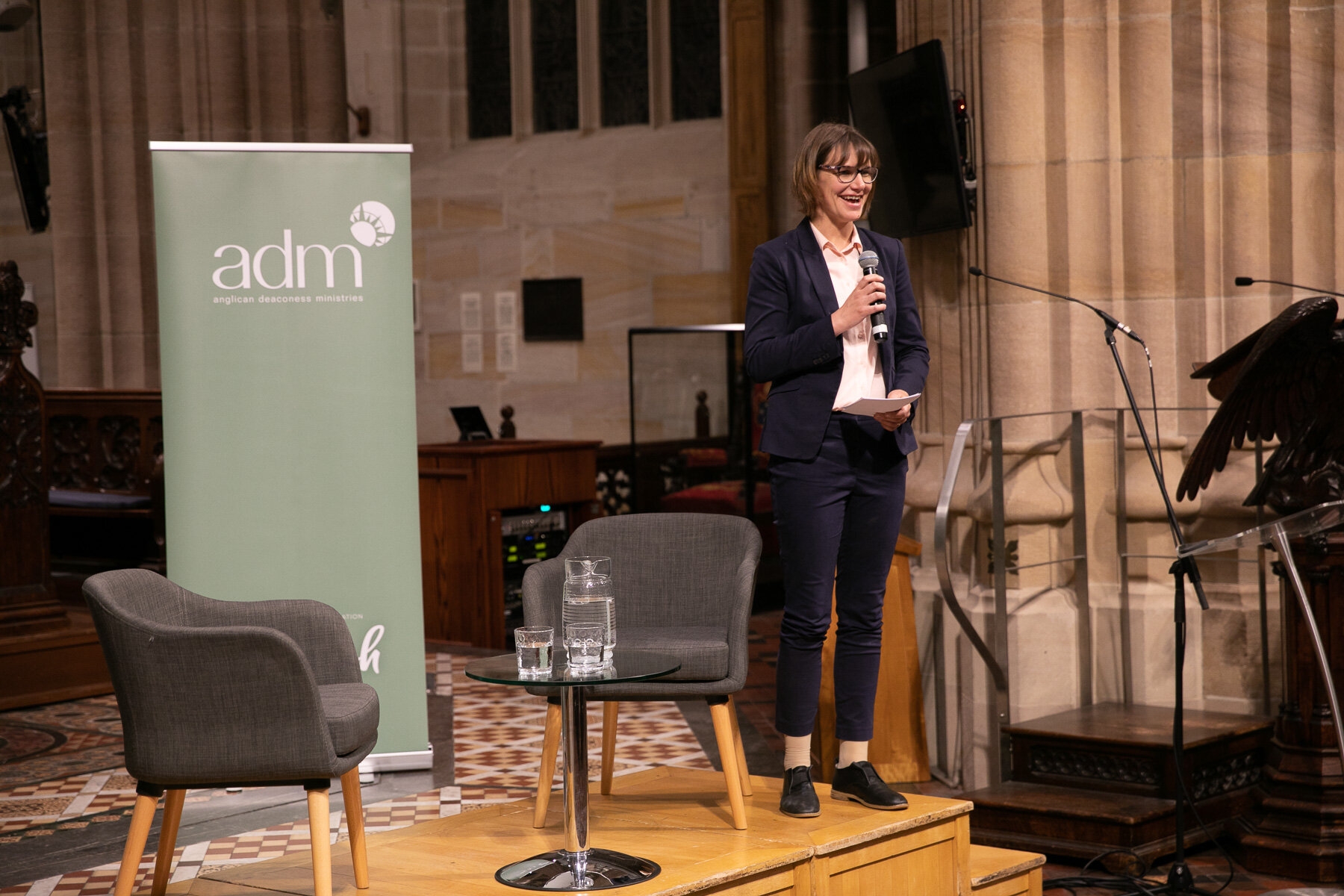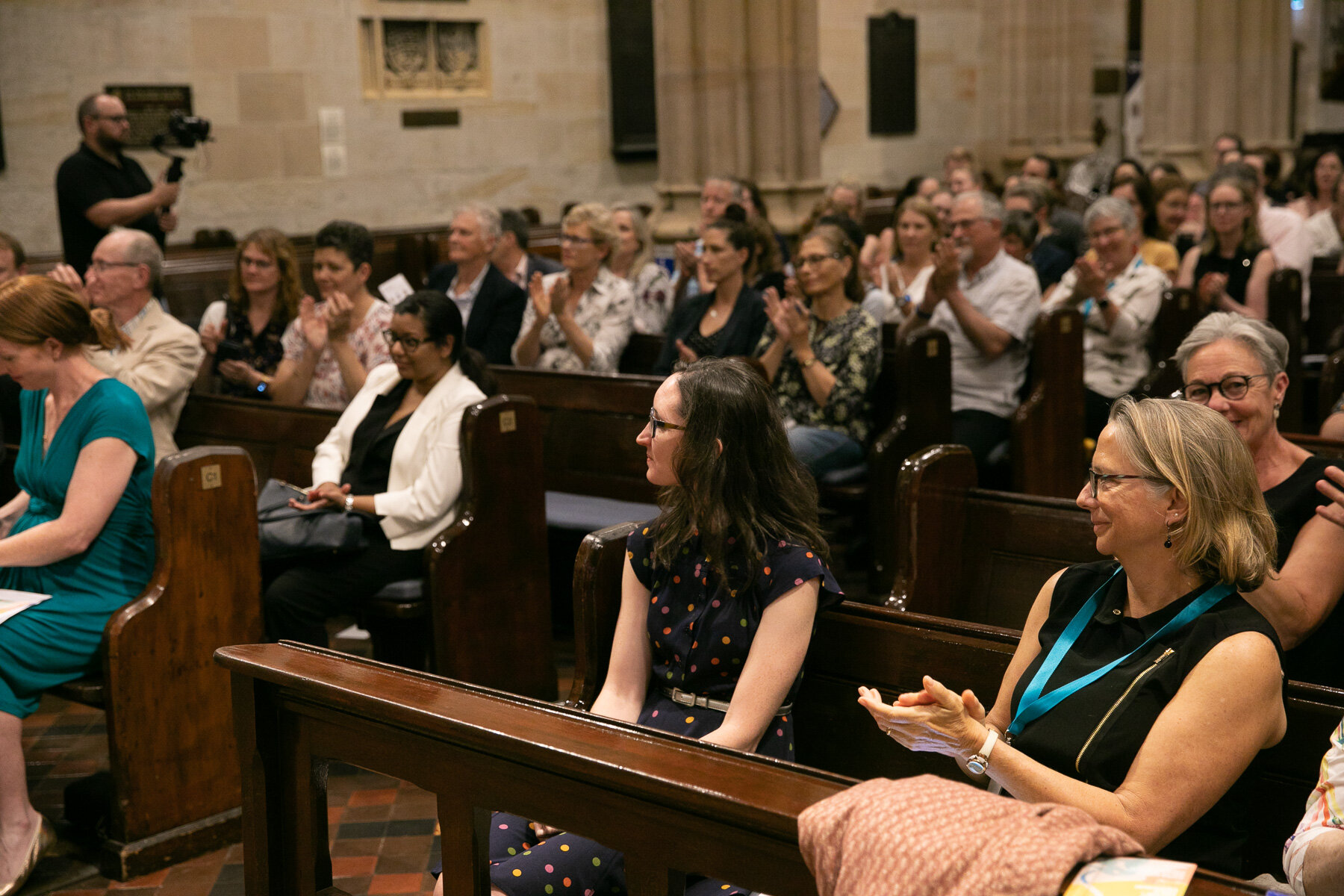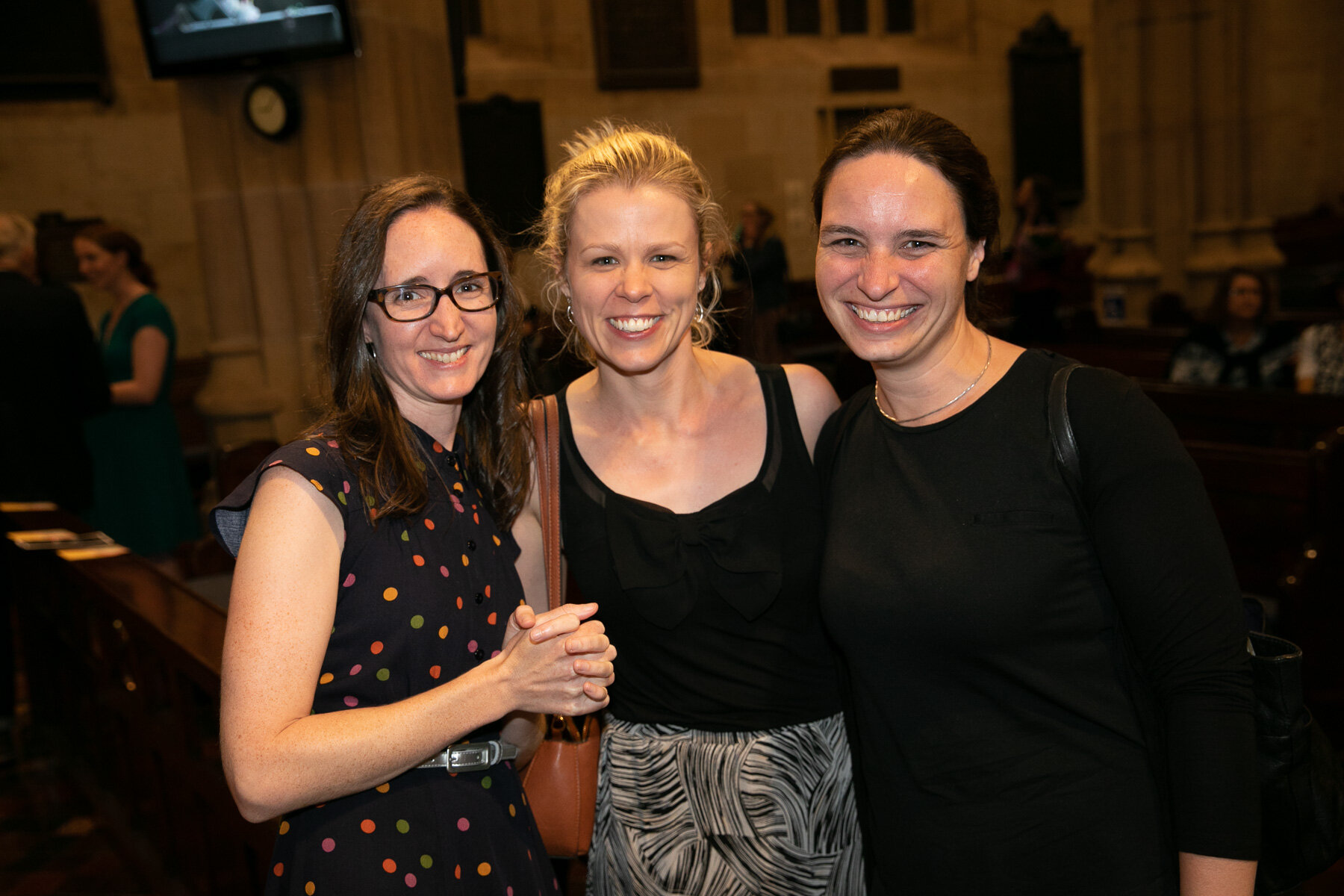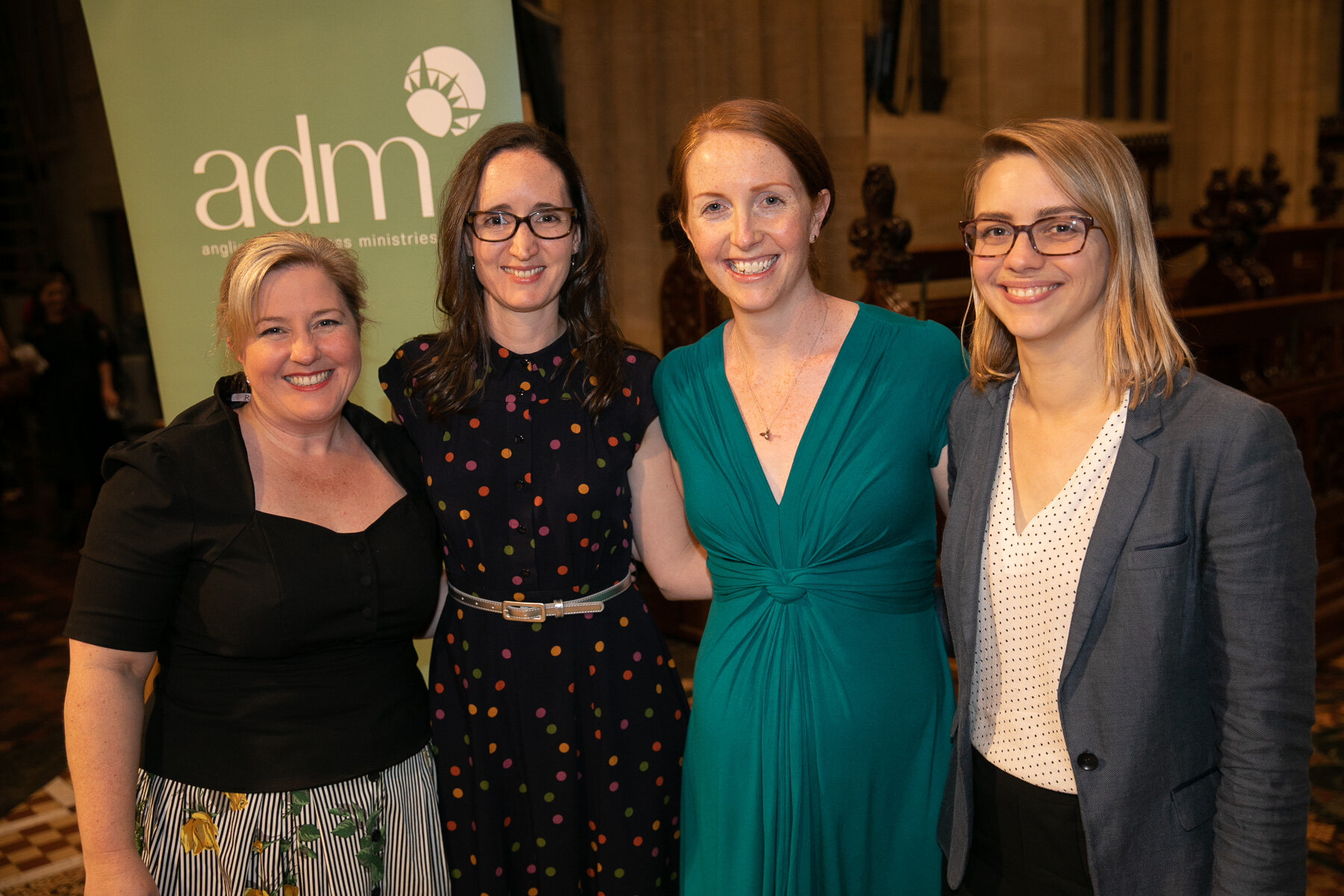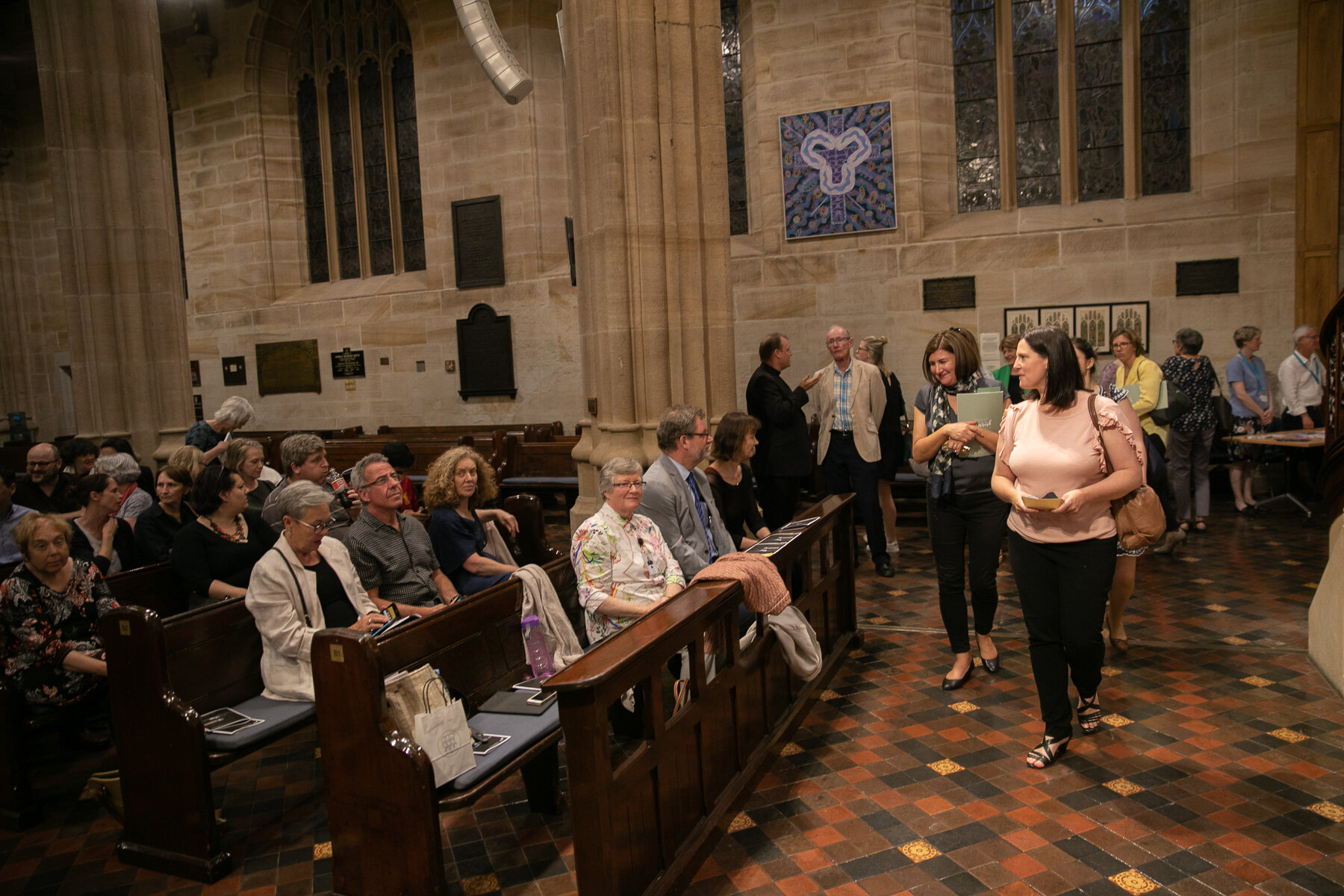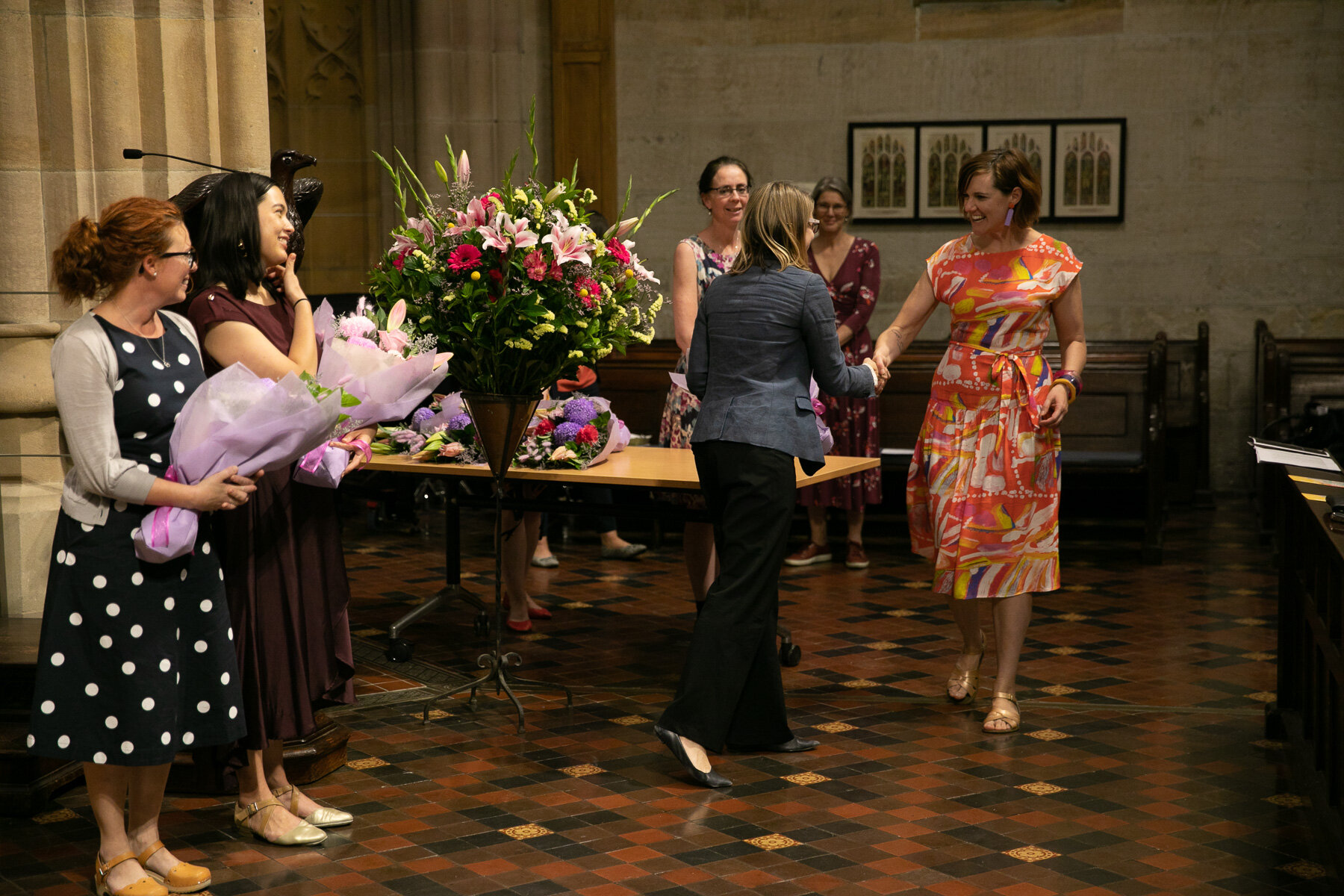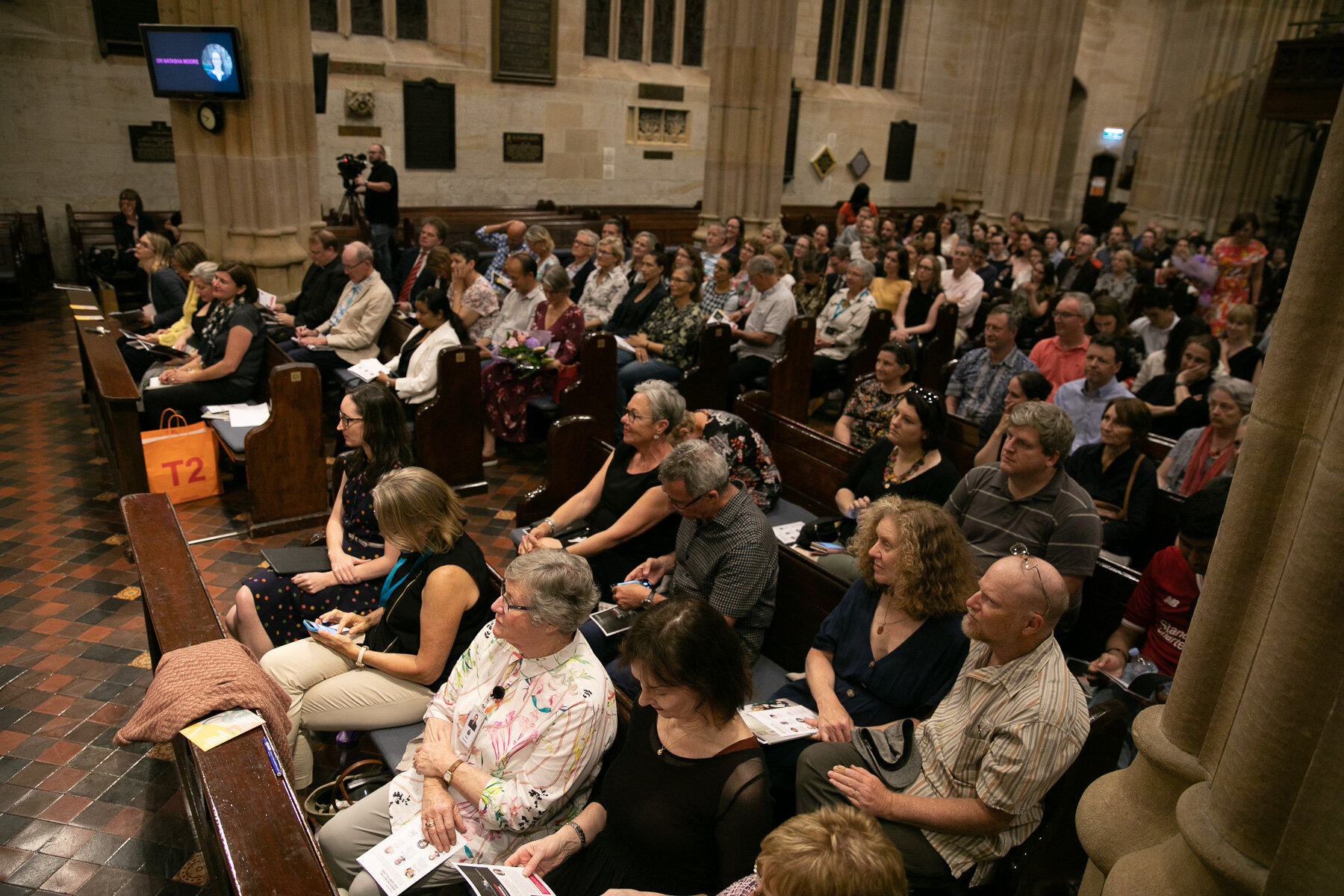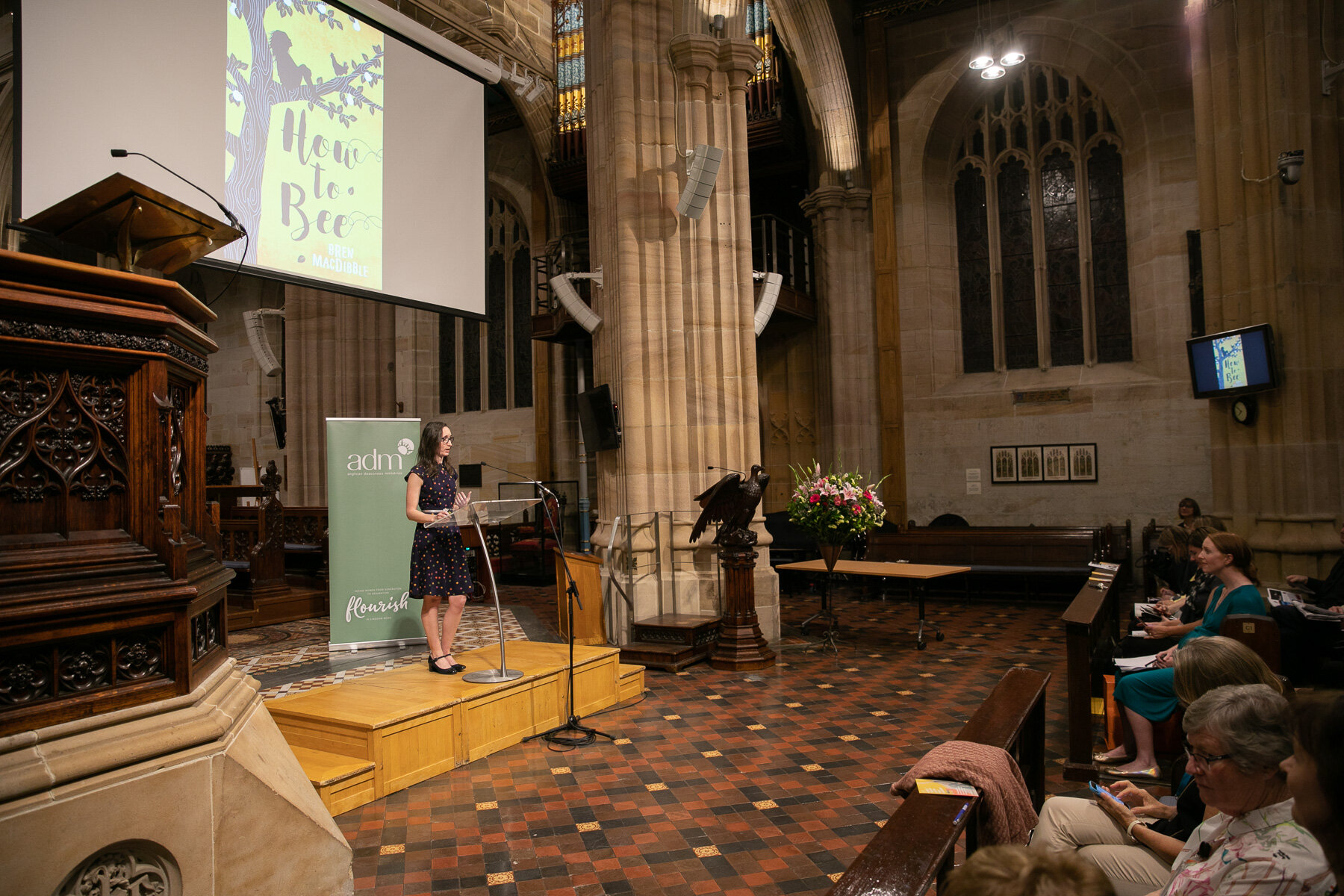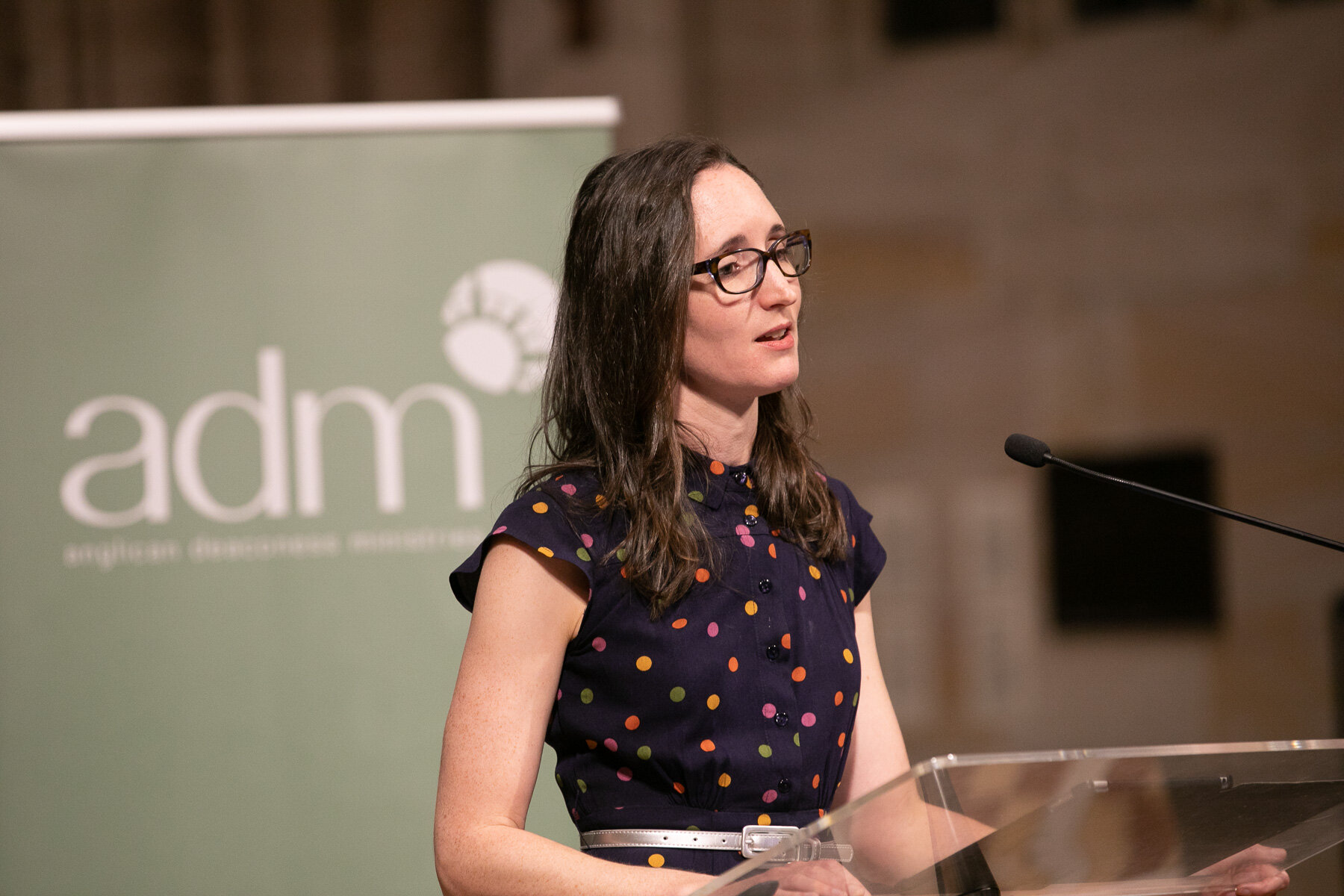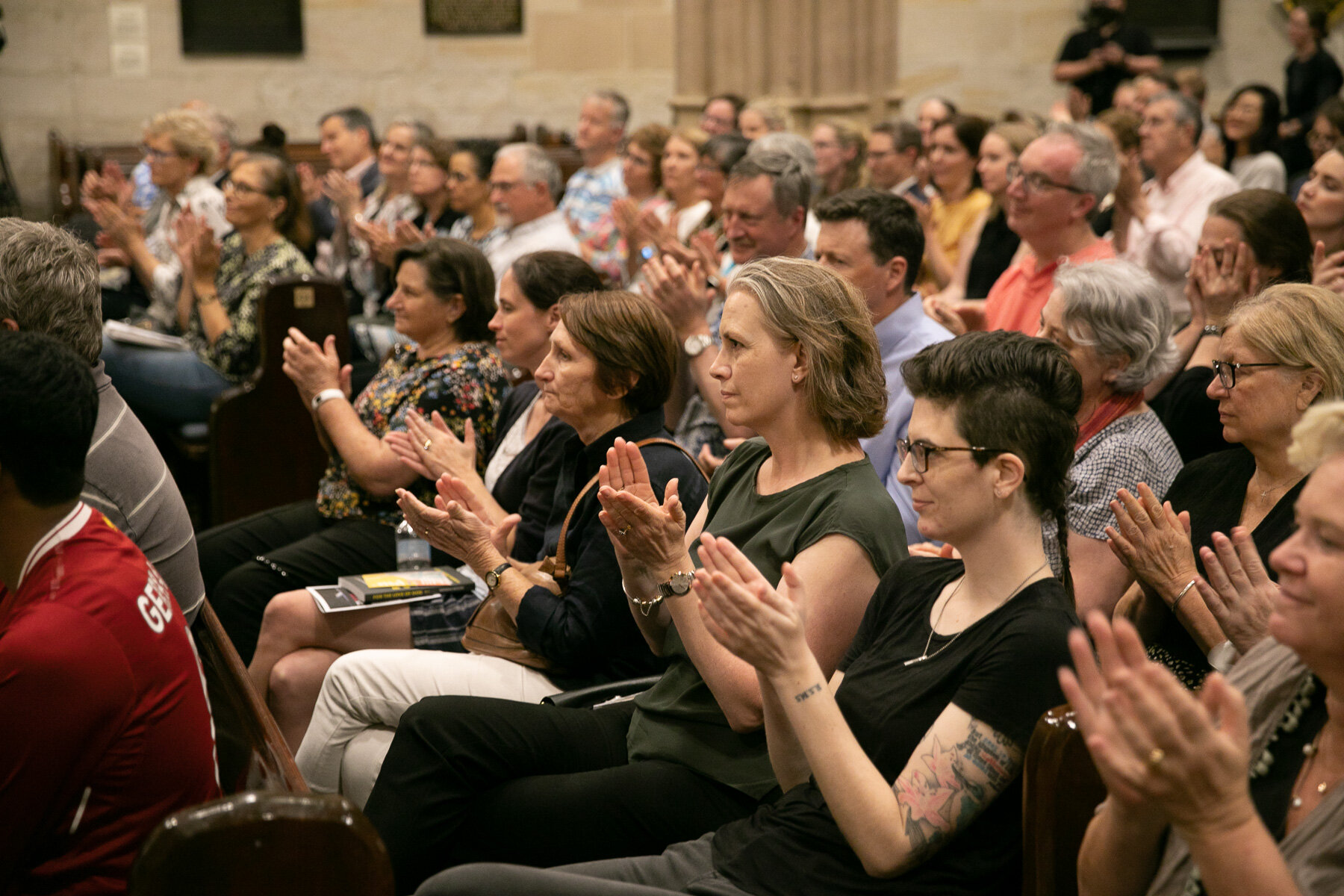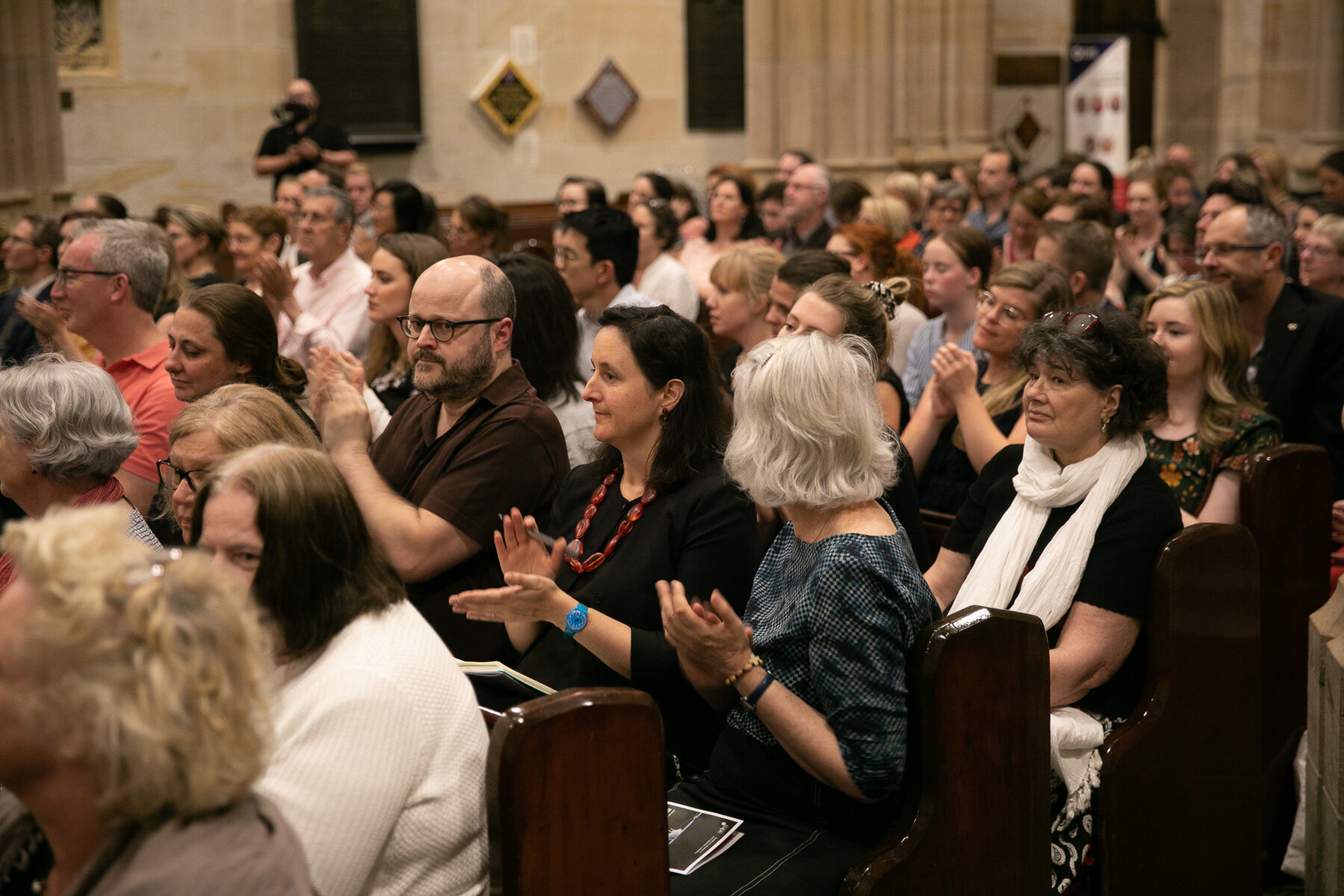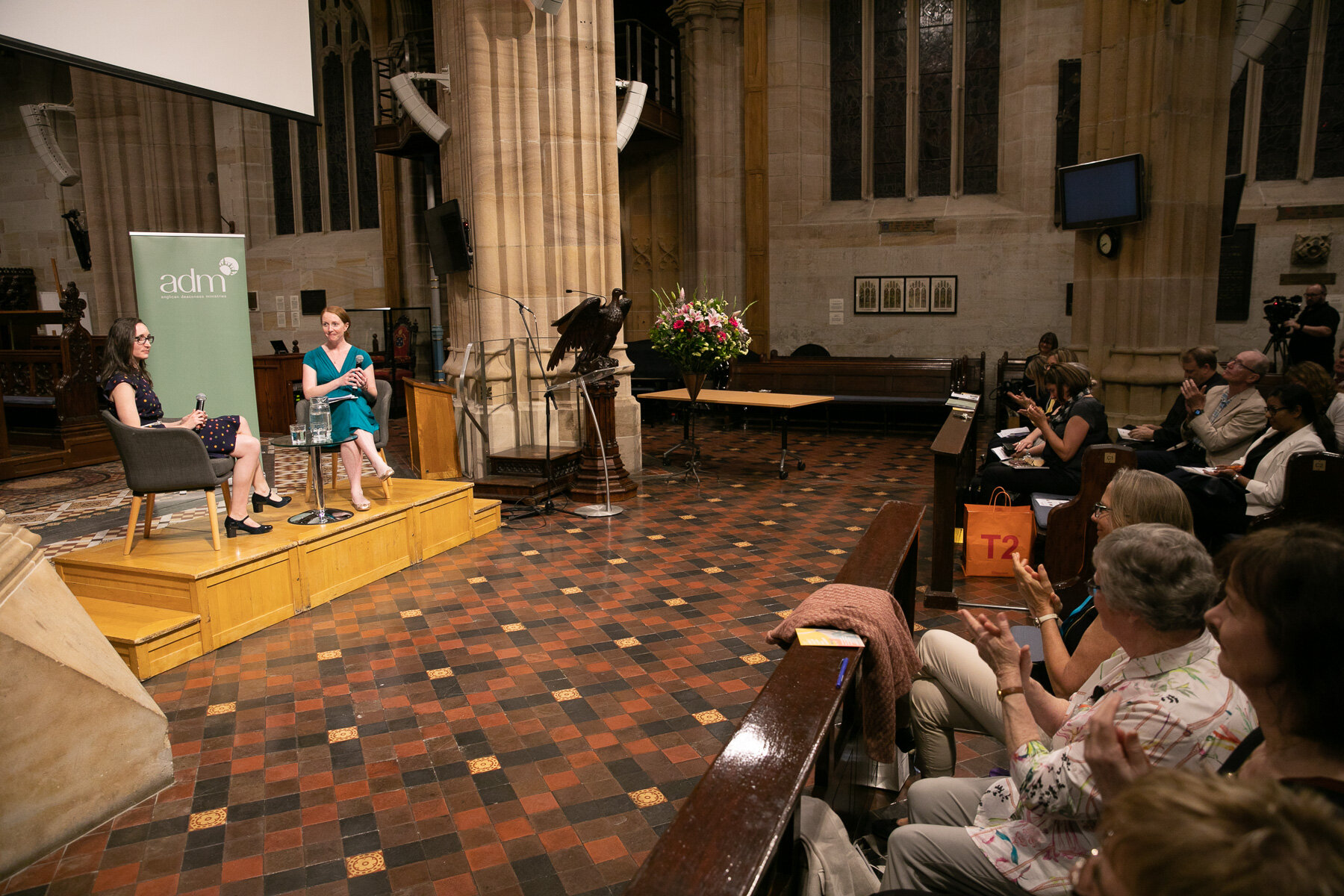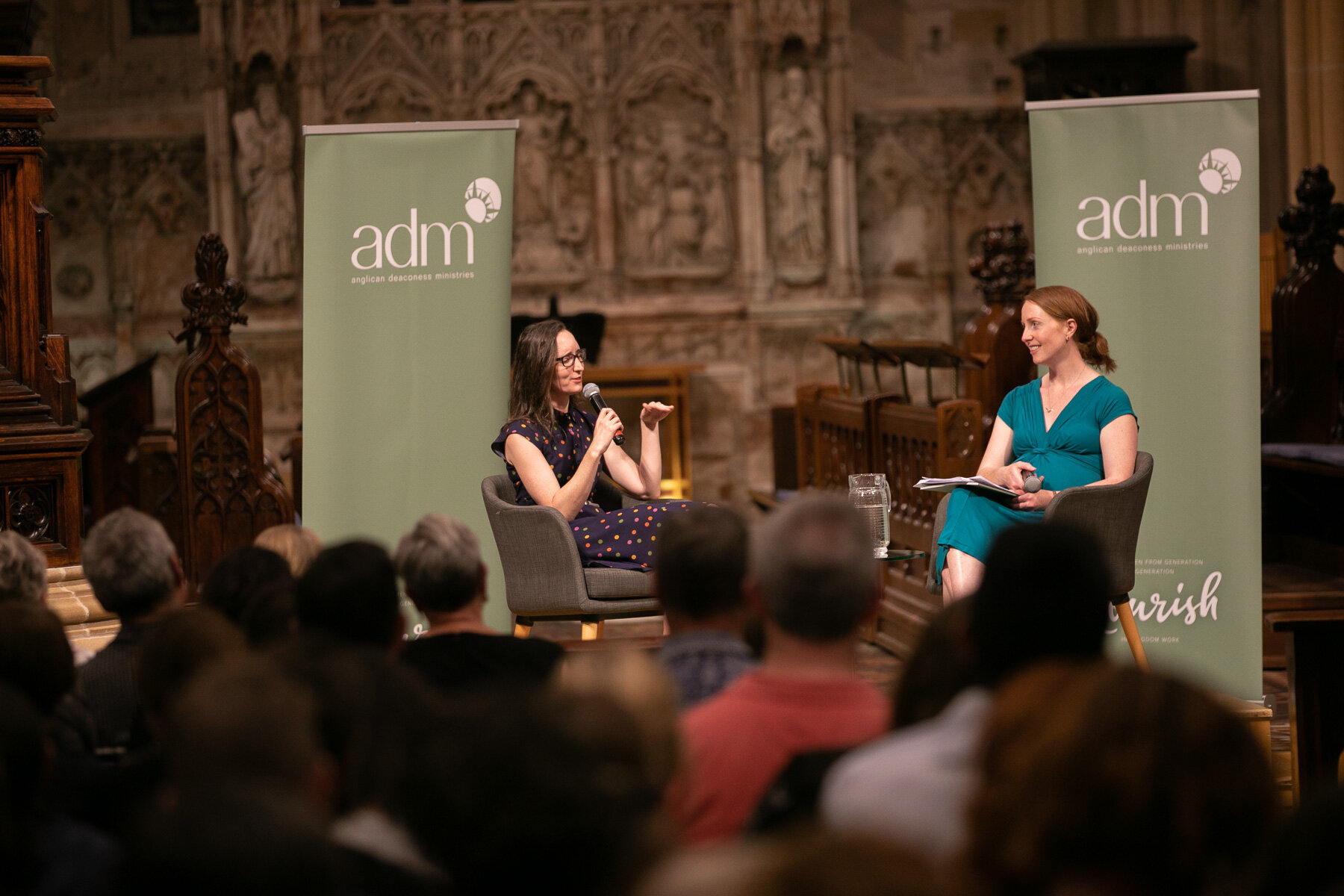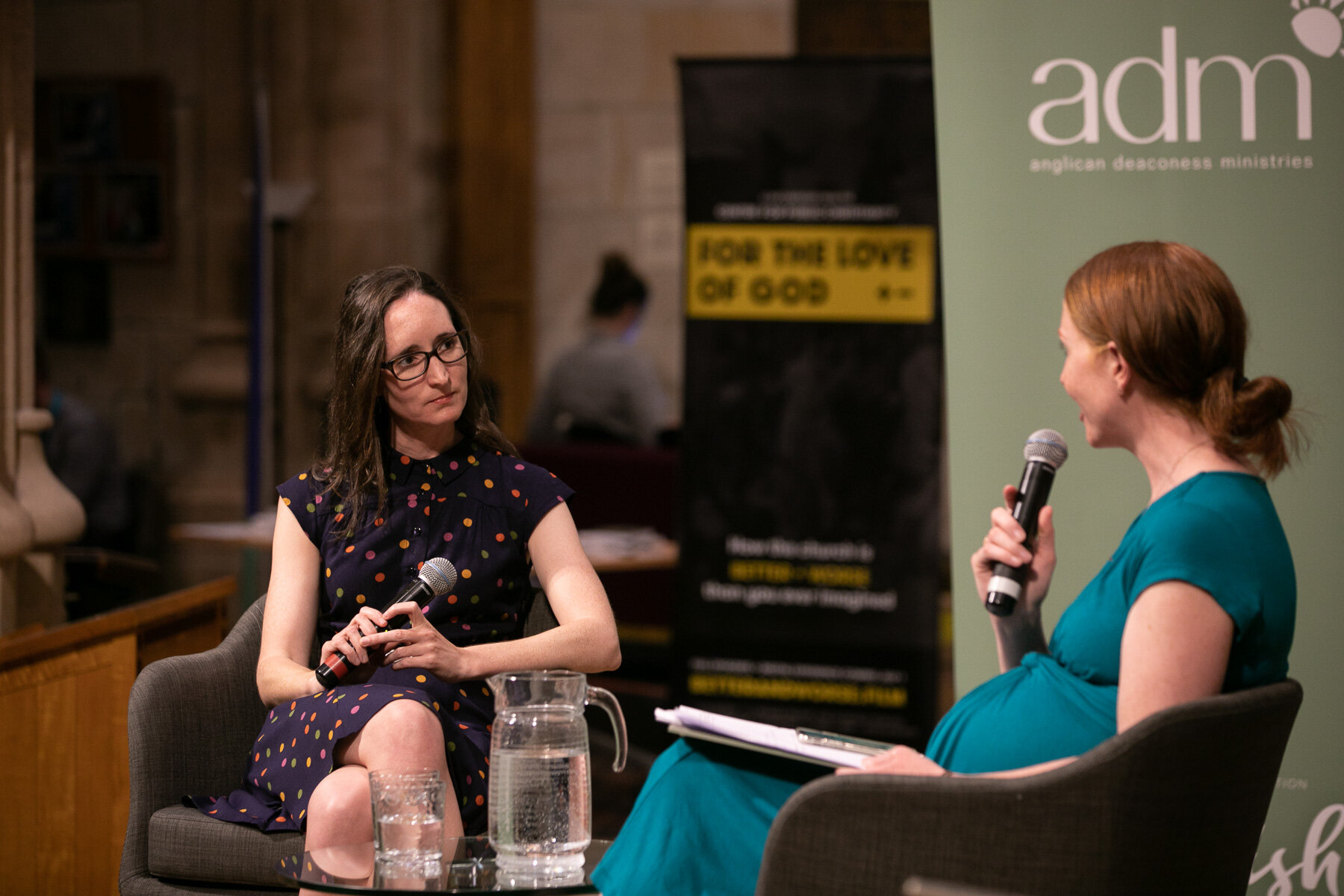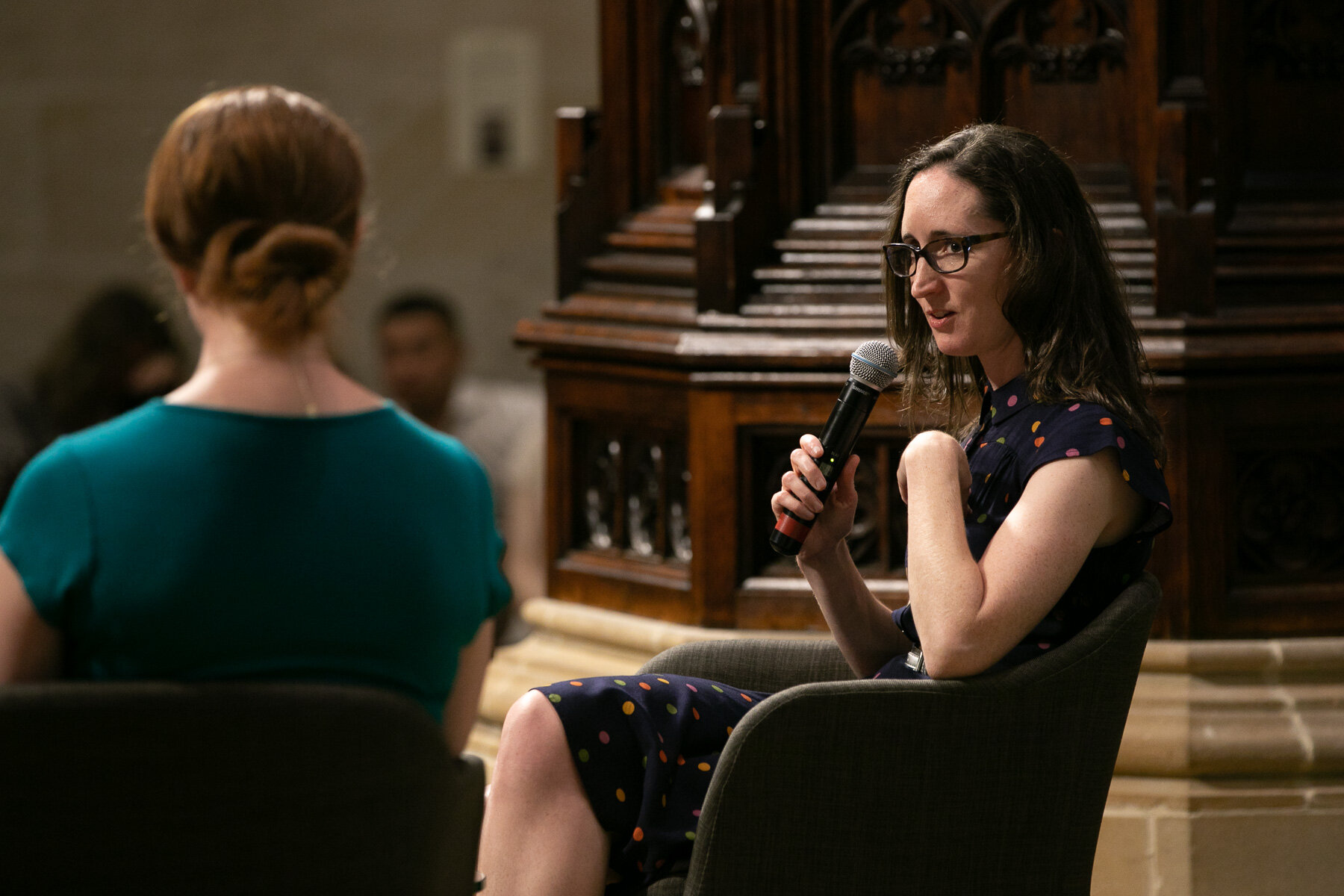WATCH the video of the 2019 Annual Public LecturE Here
“The Pleasures of Pessimism”: Dr Natasha Moore explores hope, culture and the end of the world in fourth Annual Public Lecture
Global decay, nuclear war and Zombie apocalypses aren’t exactly the stuff of cheery evening discussions. But Dr Natasha Moore’s address for ADM’s fourth Annual Public Lecture on 7 Nov. at St Andrews Cathedral provided an insightful, far-reaching and even optimistic guide through what she called, “The Pleasures of Pessimism: On hope, culture and the end of the world”.
Dr Natasha Moore delivers ADM’s 2019 Public Lecture
With almost 200 in attendance, Moore—a Research Fellow at the Centre for Public Christianity who has written on topics such as politics, books, domestic violence, food, and freedom of speech—explored why we often find ourselves intrigued by the dark side of life. Within the context of an increasingly pessimistic culture, where daily news, publications, even emails highlight what she calls “a collective panic attack”, Moore drew from young adult fiction, political commentary, social media, even popular comedians, to show how pessimism can blind, polarise and paralyse us. Yet, she noted, that for Christians, the challenge is how to live in a healthy tension between Gospel hope and realistic pessimism.
Moore’s premise was clear: “many of us (in 2019) have a creeping sense that things are getting worse. With this post-antibiotic age, populism, transhumanism, not to mention the cascading effects of climate change . . . are we more fearful than our ancestors? Should we be? Or as one writer put it, is our attempt to abolish anxiety making us anxious?”
One problem with the constant background noise of all this, Moore said, is that it can be harder to distinguish what is most serious and urgent from an authentic sense of crisis. “Our general optimism or pessimism about the future has huge implications for how and whether we can muster the collective will to tackle the genuine crises we face,” she said.
“It doesn’t help that actually, in most realms, humans are bad at predicting the future,” Moore noted before citing several historic examples of doomsday forecasting gone awry. Yet, “the more respectable face of our dark draw to destruction is to be found in a more or less healthy dissatisfaction with the current state of things.”
If we’re prone to such perceptions, how are Christians to navigate today’s cultural pessimism?
Carefully, Moore said, keeping always a keen eye on the duality of human nature and avoiding extremes.
“Strangely, it’s the affirmation of the darkness and incorrigible self-deception of our hearts that proves kind – that gives us the wriggle room to give each other the wriggle room to fail, and to build.”
“The Christian doctrine of original sin – the apparently harsh judgment that we are both corrupt and shockingly corruptible – necessitated a system of checks and balances; a system that did not allow too much power to any one individual or institution,” she said. “Strangely, it’s the affirmation of the darkness and incorrigible self-deception of our hearts that proves kind – that gives us the wriggle room to give each other the wriggle room to fail, and to build. A sunny optimism about human nature, on the other hand, has a way of making us cynical, and our social systems brittle and volatile.”
Moore concluded with the promise of hope, a reminder of what humanity can accomplish for the good of the world, even in the face of grim times. “I believe that in the economy of the Creator, we don’t have to choose between doing the things that bring people out of poverty and the things that shore up human freedom and the things that conserve and renew the earth and the things that lead to strong communities,” said Moore.
Moore’s recent book “For the Love of God: How the church is better and worse than you ever imagined” was available at the Annual Public Lecture and is based on the Centre for Public Christianity’s documentary of the same title. With a PhD in English Literature from the University of Cambridge, Moore is also the author of “Victorian Poetry and Modern Life: The Unpoetical Age” and is currently working on numerous other writing projects.
“ADM’s Annual Public Lecture provides a platform for Christian women who demonstrate outstanding achievement in their field, and who model a distinctive approach to Christian public engagement,” said Dr. Annette Pierdziwol, ADM’s Director of Public Engagement. “Since Dr Moore is one of Australia’s most distinctive public commentators on Christianity and culture, we feel very privileged to have her give the lecture and explore such a crucial topic for us today.”
Or as Moore put it, “I wish us the pessimism to look unflinchingly at the problems, and the optimism to dig for the opportunities hiding beneath them.”
Find out more about the ADM’s Annual Public Lecture or WATCH the video
